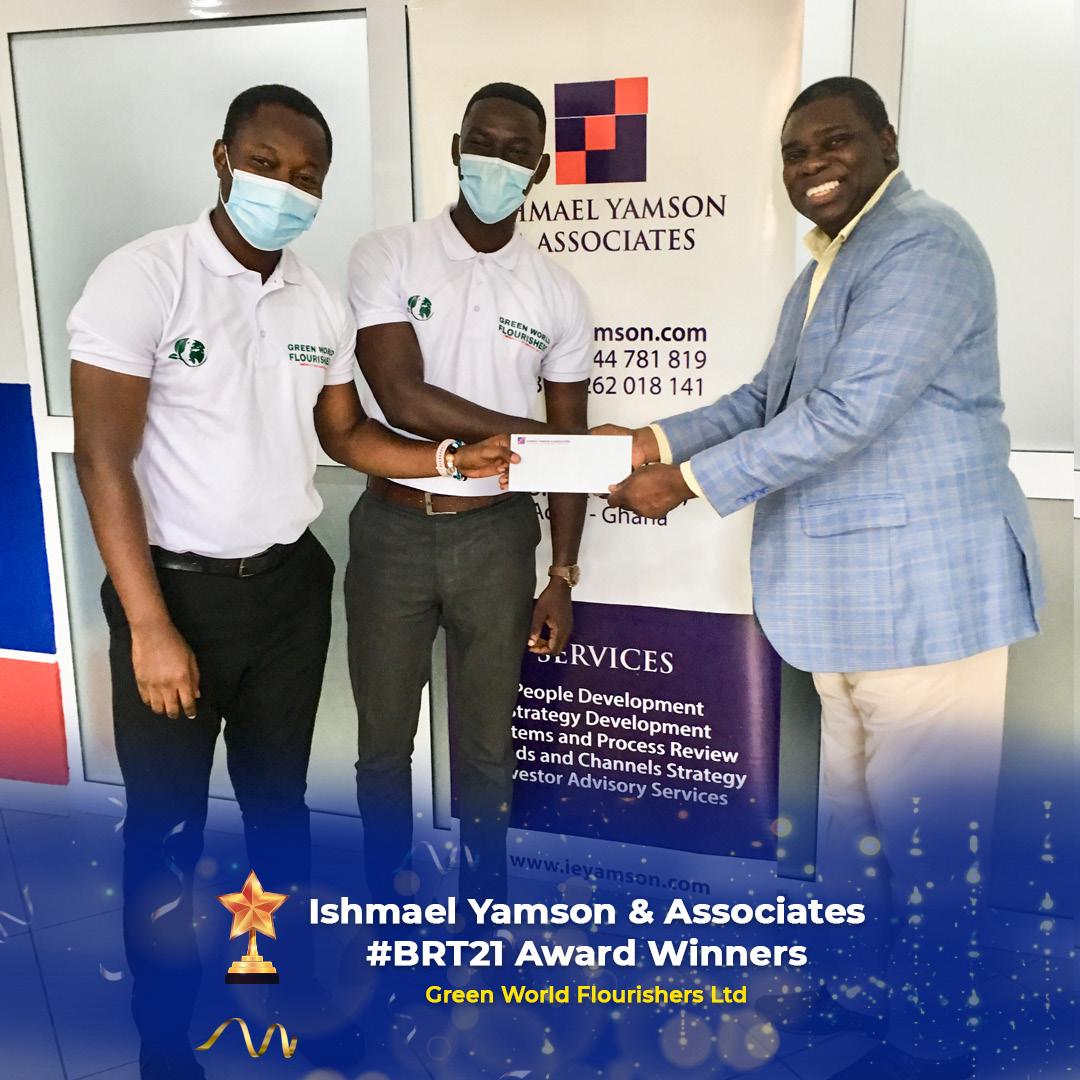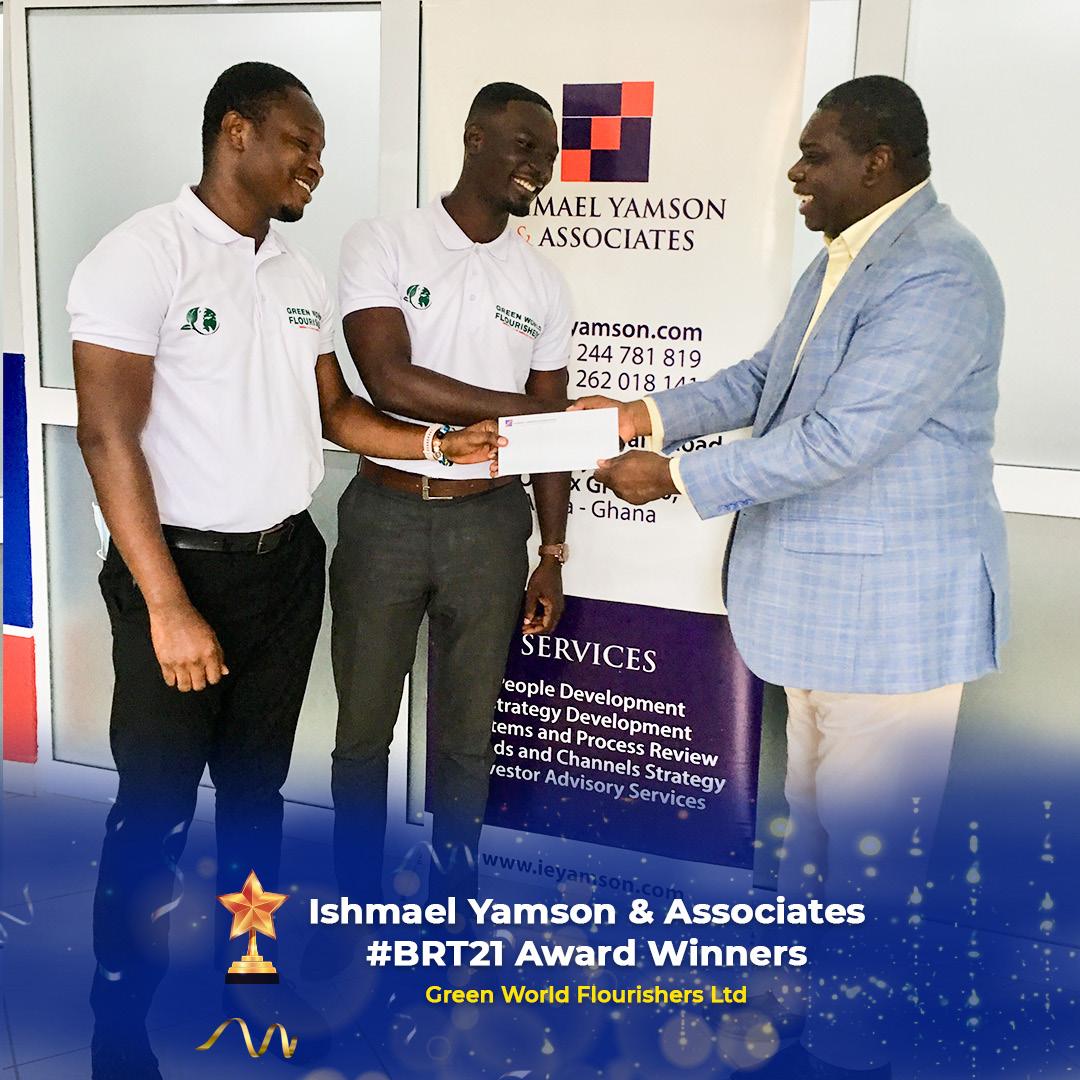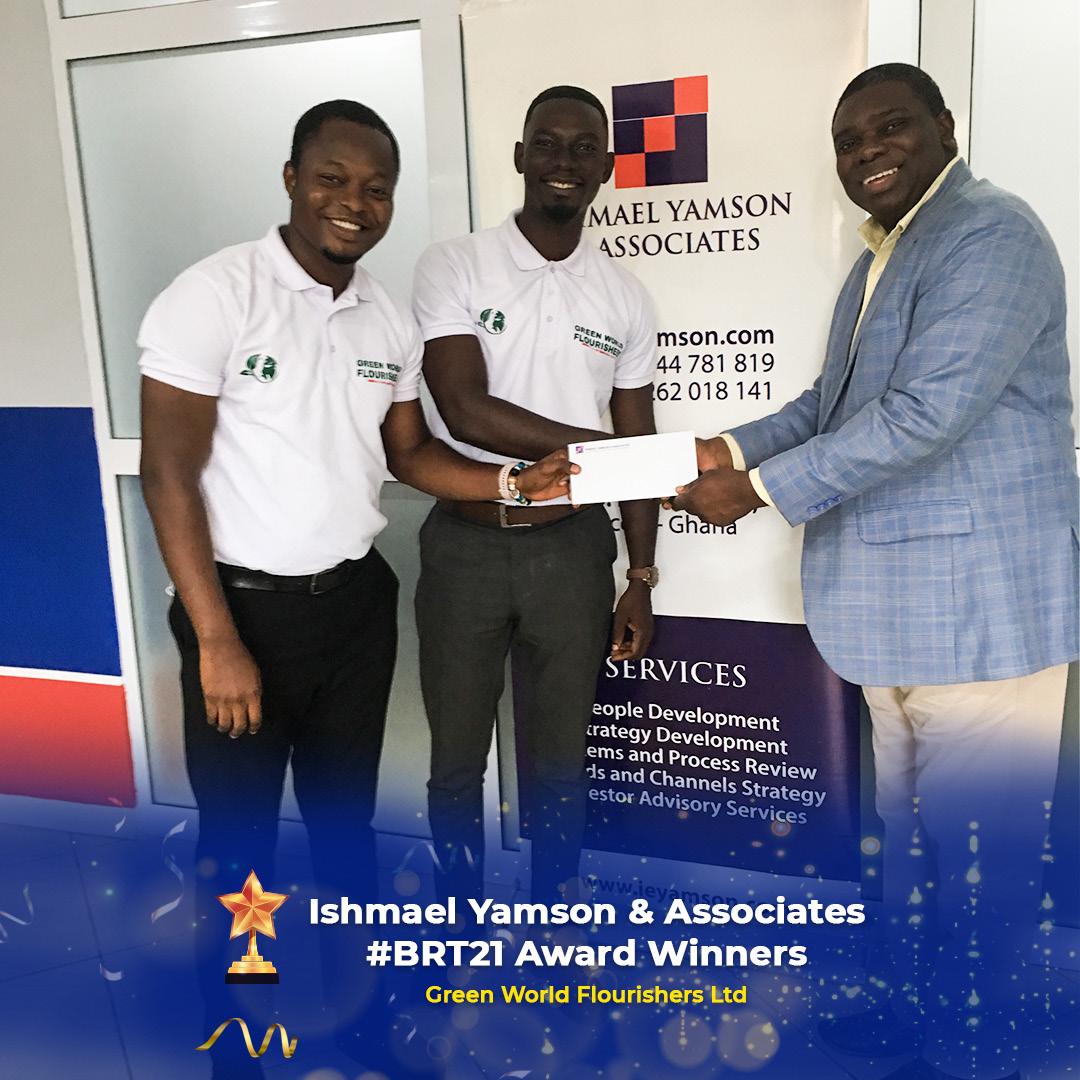
















ISHMAEL YAMSON AND ASSOCIATES is a management consulting practice which applies two core specialisations; in business and organizational transformation, and leadership development, to help clients create and unleash value for sustained growth.

In the face of the current global and local challenges that confront businesses and organizations, we believe our essential focus as partners, is to help our clients thrive and unearth the unique capabilities that can propel them into outstanding organisations, occupying market leadership over the long term.
The firm draws on the extensive management and business experience of a stable of competent and experienced consultants and associates in designing and executing all programmes, leading projects and strategy implementation in the areas of Corporate Strategy, Organisational Restructuring, Process and Systems reviews and Brand Development.
We Will Walk With You ...
We focus on implementing three imperatives for public and private sector organisations with a range of services as follows:
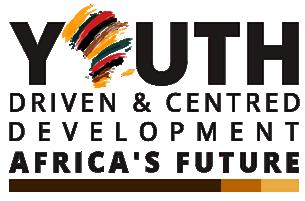
• Developing Strategy
1. Visioning and Strategy definition: We help companies and organisations define their vision and strategies, and translate Strategy into Action to create great, prosperous companies on a sustainable basis.
2. Developing Brands and Channels: We work with the operations and sales teams to help businesses to discover, formulate, and implement powerful consumer, shopper, and trade insights to guide brand vision and strategy development.
1. Organisational Reviews & Change Management: We help organisations first to align their structures, people, values, and behaviours to their vision, strategies, and plans; second, we collaborate with them to design the right management systems and processes, which support the delivery of organisational goals.
2. Governance Arrangements and Systems & Process review: We help organisations to align their governance framework and operational processes and systems to drive productivity and innovation and the delivery of strategy. We work with leaders in organisations to review and streamline their operations to provide the right platform for efficiency and productivity gains.
3. Corporate Services: We offer boutique consultancy services on capacity building including recruitment, training and development, retention and pension planning.
1. Coaching and Mentoring: We provide interactive processes for managers and supervisors to solve performance problems or develop capabilities. The process relies on person-to-person collaboration to support the individuals in three areas; technical help, personal development and individual challenges.
2. Management Education: We bring leading-edge management thinking and a deep understanding of trends shaping organisations.
We serve a wide variety of clients, including:
1. Local and foreign investors.
2. Private sector organisations.
3. Public sector organisations including ministries, departments, and agencies.
4. Non-Profit and non-governmental organisations.
We offer exclusive business training and development programmes on client-specific basis to individual companies and organizations, and also for the general corporate community – businesses in both the private and public sectors. These programmes can be accessed in three (3) ways:
1. Companies and organizations can register their executives to participate in our advertised public programmes on specific subject areas.
2. Companies can request to run any of our programmes in-house. Such arrangements require a minimum number of participants depending on the selected programme.
3. Special programmes can be designed and run for organizations and companies on a need-specific basis. The design of such programmes will be based on a brief from the organization or company.
The Ishmael Yamson & Associates Business Roundtable is a forum that presents to corporate Ghana, the public sector, development partners, civil society and all other stakeholders in our socioeconomic endeavours, an untouched canvas on which to paint a picture of the future society and economy we seek to develop. This is neither a talk-shop nor a Parliament. It is a public square and a lighthouse for sharing experience, opportunity, best practice and inspiration.
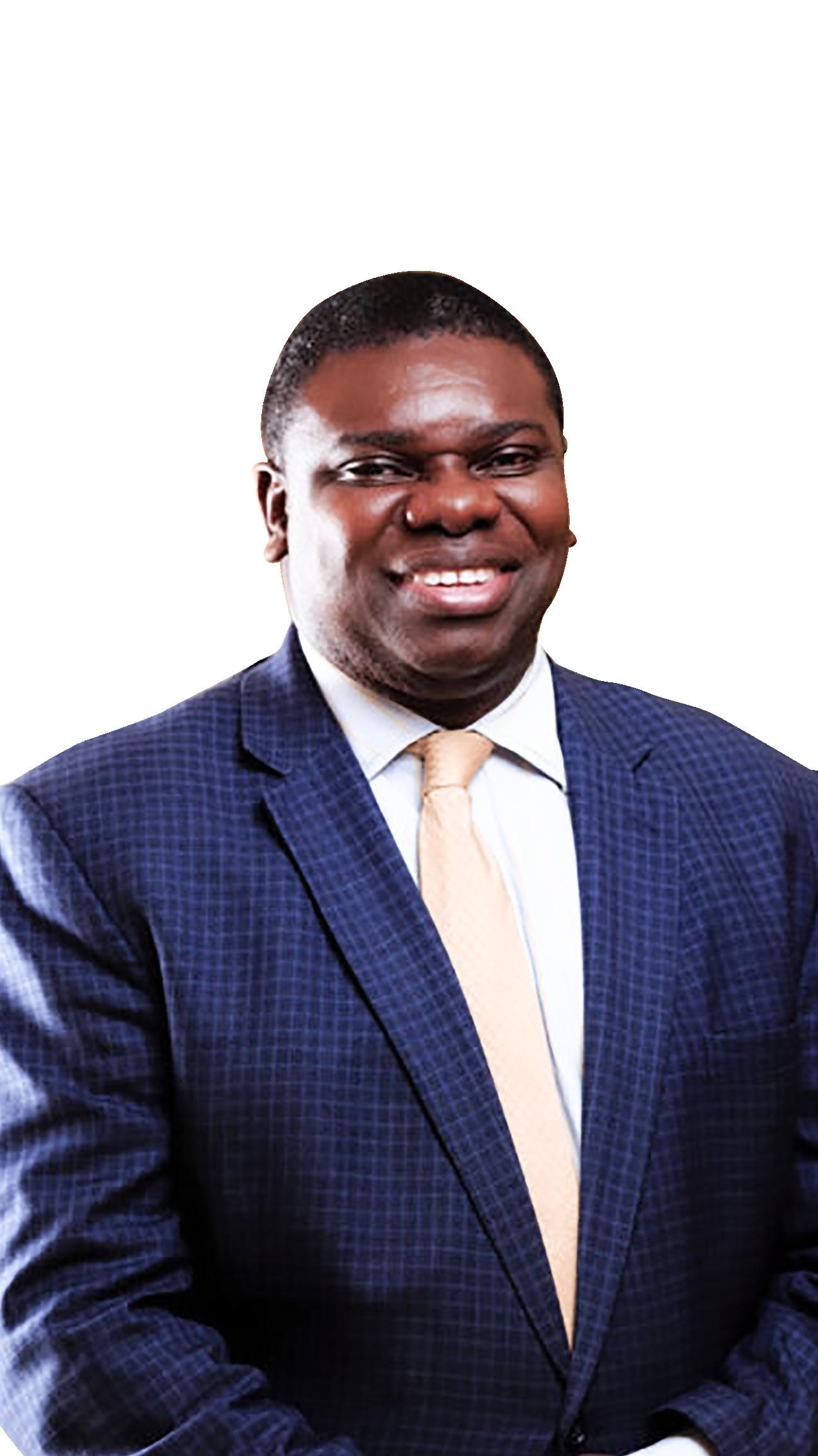
Our goal is to stimulate thought and action from these expositions.
As the Ishmael Yamson & Associates Business Roundtable has grown from 22 guests invited to our maiden edition in 2014 to discuss “Hope in the Midst of Crises”, as the economy lurched in response to disastrous monetary policy decisions, to 708-plus participants from over 20 countries across all five (5) continents in 2020, we have stayed true to our principle not to be directive but to be a catalyst for change and a resource for rethinking the validity of our assumptions about progress, innovation, stakeholders and potential.
In developing this programme we at Ishmael Yamson & Associates have explored in three (3) papers prior to this event, the import of the theme for 2021, “Youth-Driven & Youth-centered Development – Africa’s Future”; the new leadership role of the private sector in “Training Africa’s Youth to Drive Growth”; and the critical collaboration that government must orchestrate between itself, the private sector and educational institutions to ensure that the first two topics are successfully executed.

Our Speakers’ role always is to share ideas that participants and later viewers of the Roundtables can use as a template or framework to develop unique solutions and approaches to address the development and growth opportunities that lie before us.
I equally take this opportunity to extend my profound gratitude to all our sponsors and media partners. We look forward to welcoming you to our next set of events.
Now it is my honour to let the oracles speak.

“Africa must stop being a museum of poverty. Its people are determined to reverse this trend. The future of young Africans is not in Europe, their destiny is not to end their lives in the Mediterranean Sea,”
Akinwumi Adesina, President- Africa Development BankThe continent suffers from a leadership deficit compounded over some sixty years of its post-colonial history. In that time, there has been a massive build-up of deficits in infrastructure, in technology, public sector systems, market access, productivity in both the public sector and private sector and opportunities for the growth and development of African enterprise and African citizens. Since the Arab spring erupted in North Africa, there has been a momentum across the entire region for the inclusion of young people in a fairer socio-economic framework that supports and promotes the rights of young people to access economic opportunities, be part of economic decision-making and creates room for the innovations and business ideas of young people to thrive in a growing economy
Without a doubt, African enterprise in financial services, power and tourism have done very well in pockets such as Nigeria, South Africa, and Eastern Africa. In a majority of African countries also, the telecom sector has proven to be a catalyst in economic development that benefits the youth. But this is not enough.
Consequently, Africa is losing its young people – both unskilled and professionals, who year after year, are willing to undertake the perilous journey to greener pastures in their thousands in the developed economies of Asia, Europe and North America in search of the ‘better life’. The global community is as much frustrated with the lack of resolutions to the problems of Africa, as it is indignant about the migration of young Africans. What drives this exodus, is the uncertainty of their future if they stay in Africa and the guarantee of poverty if they do not move. The future of the continent’s economy and Africa’s place in the emerging Fourth Industrial Revolution are both at stake.
The nature of the challenges that Africa faces require a “new kind” of responsiveness. The African Union, through its African Youth Charter, signed in 2006 in Banjul, the Gambia, enshrined the rights, duties, and freedoms of African youth to ensure the constructive involvement of youth in the development agenda of Africa and their effective participation in decision-making processes towards the development of the continent.
The youth account for 60 percent of all unemployed Africans. They are the current and future workforce of the region, with about 11 million young people expected to enter the labour market or start running their own businesses each year for the next decade. While there has been growth in formal sector jobs in some countries, most young people are likely to work in informal sector jobs such as household enterprises or in family-run firms. To transform their economies in today’s borderless economy and global talent market, African countries will require knowledge-driven institutions and the untapped advantage of well-educated and trained youths who represent Africa’s vast potential to become the forerunners for innovation and disruptive change.
Africa’s youth will be the implementers of the agenda for economic transformation. Therefore, they must set the direction and define what investments are required to drive African development over the next decade in new sustainable industrial development, improved economic productivity and the accelerated creation and equitable distribution of wealth.
Current leaders of African states and major enterprises must extend credible invitations to the youth of Africa to actively participate in defining, reimagining solutions and implementing policy to resolve Africa’s most pressing challenges that will evenly deliver ground-breaking development and wealth across the continent.

We hope that BRT 2021 will help stimulate the conversation on how to implement this agenda.
By: Ishmael Yamson & Associates Dr. (Mrs.) Abena Asomaning Antwi Lecturer and Managing Director, Africa Environmental Sanitation Consult
Dr. (Mrs.) Abena Asomaning Antwi Lecturer and Managing Director, Africa Environmental Sanitation Consult

The very essence of the African continent has such diverse nomenclature that its description has failed many, both in the developed and developing worlds. But of no doubt is the great promise that the continent holds in terms of its human capital. There can never be a discussion of development of Africa in contemporary times without the mention of the strategic plan and futuristic promise made by African leaders for Africa at the Africa Union’s 50th Anniversary Solemn Declaration in South Africa in 2013. In unison, the Agenda 2063 (which is an agreed strategic development framework for Africa with a guiding vision “to
build an integrated, prosperous and peaceful Africa, driven and managed by its own citizens and representing a dynamic force in the international arena”) made important strides towards its realization. A First 10-Year Implementation Plan was developed, agreed and adopted. As a continent with many collective development plans made and sometimes gathering dust on shelves, I consider this momentous for many reasons, some of which I will attempt to expatiate subsequently. The Plan contains eight key aspirations but worthy of note and of relevance to the theme today are the 1st, 6th and 7th Aspirations. The 1st Aspiration
states the long-standing collective dream of many African leaders of the 1950s/60s, “A prosperous Africa based on inclusive growth and sustainable development—Africa will by 2063 be a continent of shared prosperity, which finances and manages its own growth and transformation”. Conversely, the Aspiration 6, clearly echoes the desires of many young and talented Africans – that the Agenda will produce “an Africa whose development is peopledriven, relying on the potential of African people, especially its women and youth, and caring for children—By 2063, Africa will be a continent where all citizens will be actively involved in decisionmaking in all aspects of development, including
I stand here as a proud daughter of the land to extend felicitations to all our African Heads of State, particularly our current president, H. E. Nana Addo Dankwa Akufo-Addo for the realization of the AfCFTA and the presence of its headquarters in Accra, Ghana. While this is a major feat and promises to deepen regional integration, African youth wait with bated breath on experiencing the full benefits of the Agreement in ensuing years. A tripling of the policy framework aimed at enhancing Africa’s Youth-Driven and Youth-Centred Development is the Sustainable Development Goals (SDGs).
social, economic, political and environmental. Africa will be a continent where no child, woman or man will be left behind”. Indeed, this is a welcoming approach to development but allow me to add on to the goodwill the policy and political space has incrementally garnered. Do permit me to repeatedly echo the mantra of the Agenda 2063 - “The Africa We Want” all through my presentation today, I don’t own this phrase but I believe it resonates with the spirit with which I present today.
Another milestone worth mentioning is the decision of the African Union (AU) in overcoming intraAfrican trade challenges by the establishment of the Continental Free Trade Area (CFTA) in 2012.
With all three policy frameworks established, I wish to point out some of the commonalities embedded in them for our appreciation. The policy areas of converging interests for all the global and continental audience, include but not limited to incomes, jobs and decent work, women, girls and youth empowerment, health and nutrition, poverty reduction, education, science, technology and innovation, economic diversification, climate change and a host of others. But what do these policies mean for the development of the youth of Africa? According to the International Labour Organization (ILO), of the 1.3 billion inhabitants on the African continent, 60 percent are young people under 25 years. And while the labour force is almost 500 million, an estimated 252 million are working as hard as they can but remain poor. These statistics are not intended to alarm you but to expose the harsh realities of our continent for a healthy discussion. In the space of education or a means of preparation for skills acquisition, the ILO puts a rough estimate of 54.5 million young people in the category of those not in education, employment or training (NEET). Disturbingly, of the close to half a billion workforce for Africa, children who work account for 72 million representing almost half of all documented child labour cases globally (ILO, 2019).

“
The Africa We Want” all through my presentation today, I don’t own this phrase but I believe it resonates with the spirit with which I present today.
Despite the challenges facing the African youth, the situation of our development is not as bleak, I must emphasize. The Development Centre of the Organization for Economic Co-operation and Development (OECD) has described Africa’s economic performance as better than Latin America and the Caribbean (LAC) but lagging behind Emerging Asia. Indeed, the African continent has been cited for being the repository of some of the fastest growing economies with such countries as Ghana, Rwanda, Ethiopia, Cote d’Ivoire and Tanzania mentioned (OECD, 2020).
There are inherent opportunities and amazing potential in each of the member countries of the African Union and members of the AfCFTA. To illustrate my point, I will use Ghana as a case study. According to the ILO, the estimated unemployment rate among the youth stood at 9.46 percent in 2020 but a projection of an approximate rate of 4.5 percent has been made for the total labour force in 2020. While Ghana’s unemployment is considered average in relation to other Sub-Saharan African countries, it is above the worldwide unemployment rate.
Close to 50 percent of the country’s population is found in the services sector with a measly 28.46 percent in the agricultural sector and 22.19 percent in industry. While experiencing a decline in economic growth due to the pandemic, entrepreneurship has seen an appreciable escalation. To give a hint of the untapped potential that exist on the continent data shows that in the face of rising unemployment in many parts of the continent, there is a corresponding and aggressive resistance through the African ingenuity – in 2020, South Africa recorded the lead on the continent in terms of countries favoring women entrepreneurship drive with 64.4 index points followed by Botswana with 62.4 and Ghana with 60.2. The index gives weighting to countries with high female-owned businesses and those that are making deliberate efforts to support women entrepreneurs. I applaud the efforts of these countries and essentially the resilience of all hardworking entrepreneurs, particularly, women entrepreneurs, thriving in
this unfortunate pandemic period while carrying the burden of family responsibilities and often discrimination – this also proves to me the ingenuity of the African. That while the terrain has been extremely difficult, young people have shown that they can face their fears and conquer.
“The Africa We Want”, is a mantra that every youth in Africa must chant incessantly. With the policy framework and corresponding steps taken toward the attainment of the various initiatives mentioned earlier, the youth of Africa, must own the vision as well. They must own the vision’s implementation with their choices and selflessness. I sit on the Foundation board of one of the biggest fruit processing companies in Ghana, and my heart aches when we are told that the fruit farms in Ghana that feed the factories have aged, that most of our farmers have become old and sick, unable to continue with their active passion. That the young men and women are no longer interested in agriculture. That they would rather sell, that productive farm lands are being turned into residential and commercial properties. That as a processing company that employs more than three thousand, five hundred people in Ghana alone, they have to travel to countries in the sub region to source for fruits for processing. “The Africa We Want”, is this how we can truly achieve the Africa we want by side-stepping active participation in agriculture?
This takes me to the dimension of how prepared we are as the youth to embrace the expected change for our continent. Just cited agriculture as an example in Ghana, how many young people in Africa have the attitude to start out their careers in a difficult and not-immediately rewarding sector? The attitude we have to develop to embrace the opportunities proposed in the policy frameworks mentioned earlier is important to “The Africa We Want”.
Here, I wish to talk about the attitudes of young people of today. As former President Obama said, “Our work will not be easy. The challenges we face will require tough choices”, and hence to attain the
heights we must as Africans and see the “The Africa We Want”, youth of the continent must ready themselves to transform the continent-wide and country-specific policies into workable solutions. I am sure you may be wondering how this can be achieved.


While I don’t have all the answers, I do know with certainty that education through both formal and non-formal means is key to escalating the pace of development to the levels we desire. The youth of our dear continent must eschew the incrementally dangerous and unproductive get-rich attitude which has not only plunged many into the life of crime but into a slave mentality that only great destinies can be found away from the shores of the continent. “The Africa We Want” can only be built by young Africans willing to put their hands to the till and work hard. This requires preparation on all fronts and I can’t emphasize this enough.
Not long ago, I shared a personal experience on how I once begged to be employed as a receptionist and how years down the line, I have gained a doctoral level of
education and many opportunities have been availed to me. This social media post gained an impressive traction and seems to have motivated many young people but the question must be asked of how many young people are willing to be patient enough to go through the difficult and often uncomfortable route of poorly-paid internships, torturous hours of studying, grueling hours of coaching and sometimes, the disappointment of low appreciation of efforts? Still, are you willing to explore in the face of these challenges as young people? To be brave enough to chart paths not yet paved? To keep going in the face of the many “NOs” on the path? The wells of excuses are running dry, youth of Africa – the continent, although not entirely developed has made incredible strides towards development, particularly in the advancement of technology which presents opportunities for innovation.
Admittedly, starting out in any venture is not easy and requires the bravery of a warrior and also the appropriate mindset to set to achieve your personal goals. On a personal level and as part of self- introspection, the

youth of Africa must understand that the development of Africa depends on the African youth alone. There’s so much that you can do to support the growth of our dear continent and each youth must take their own first few steps and collectively, you would be moving as a purposeful herd. There is great hope in the technological space for the youth of the continent, and this should stir up some excitement. In the Sub-Saharan African region alone, mobile phone ownership in 2021 is expected to reach half a billion with innovative digital services permeating the remotest of villages on the continent (www.afdb.org). There are a number of partnerships that are happening on the continent in the space of technology for instance which can support development and preparedness of the youth on the continent.
I can cite the Africa Technology and Innovation Partnerships (ATIP) worth over £32m located in Tanzania, Twitter’s location of its African hub in Ghana (https://www.africanews. com), tangible innovation being demonstrated in a cashless system and the e-mobility space in Rwanda, just to mention a few. There has been tremendous strides made in Science, Technology, Engineering and Mathematics (STEM) education, unfortunately not synergistically across the continent but to see the Africa we want which is youth-centred, greater efforts must be made in this stead. For policy-makers participating in this conference, I wish to ask what our respective governments are doing to engage the 54.5 million young people in the category of those not
in education, employment or training (NEET) on the continent. To achieve the Agenda 2063 and the “The Africa We Want”, none of our youth can be left behind. I know there are discussions among key national representatives on the rebranding and modernization of TVET, I pray we hasten our efforts in this stead in order to prepare the youth of Africa for “The Africa We Want”. Time and tide, they say waits for no man and as we crawl in our development efforts, the rest of the world seems to be accelerating in development of their youth.
“The Africa We Want” and so seek for the youth is one also about leadership. A youth-centred development for Africa demands that’s our leaders not only focus on trade integration but focus on environmental governance and climate change issues – illegal mining in Ghana (galamsey) for gold, the work of ‘Zama Zamas” in South Africa for coal, using children to mine Coltan in Democratic Republic of Congo and others. The youthcentred Africa and the Africa we want demands that leaders of Africa make laws and become compliant as well. That leaders of Africa will lead the way in acknowledging that they cannot leave any legacy for the youth of this continent if they continue to allow the continuous rape of our land.
The youth-centred African development would not be complete without a mention of partnerships and the ethnocentricity that are glaringly and sometimes subtly present in our various countries. These divisive arrangements cannot support incountry development and I daresay,
maybe destructive to the cohesive African development agenda we pursue. I recently visited Rwanda, a beautiful country which is focused on its development as one people and without a hint of ethnocentrism and I was encouraged. But one could conveniently say this is possible because of the historical antecedence of the horrific and unforgettable genocide that occurred in that country. From their narrative, the genocide did not start suddenly, there were always subtle preconditions to it and one simple event gave way to the unfortunate killings where many youth were used to commit these crimes. But this path of working together as a country without divisions should not come to the rest of the continent at the heels of atrocities, our governments can learn from the bad example of our neighbors.
Then there are the other African countries which operate within democratic dispensations where equal opportunities are promised citizenry yet in actuality, very few enjoy the benefits and fruits of the land. Research on sixteen countries shows that the electorate of Africa focus predominantly on two key things to vote (Bratton, Bhavnani & Chen, 2012). Can you guess? Mind you majority of the population of Africa is youthful and the two focal points for voting are ethnicity and economic benefits to be gained should their preferred candidates win. These partisan considerations for selecting the leaders of African states cannot support, in the long term, a youth-centred Africa and the Africa we want. The future of the Africa we want should be one that is premised on grooming, training and building character of the youth of today for leaders of tomorrow in unison. Imagine a young entrepreneur being refused support because there’s a perception that that young person does not belong to the reigning political party.

This happened to me – I share this experience sadly but with great resolute not to repeat same to another. A few years ago, as an entrepreneurial youth with a passion for agriculture, I accessed a government financial support to start a pineapple farm. I had access to 10 acres of land but lacked the funds to start. When a government 0% fund was advertised, I applied and got support for 5 acres.
The support was gained under one government of a different political party and when I was successful in utilizing the funds in cultivating 5 acres, I repaid the loan in hopes of getting further support for the entire 10 acres. With a change in government, my attempt to reapply was blocked. I later gathered from one of the decision-making team members that, a decision had been made that due to the perception that all beneficiaries of that government fund were part of the opposition party, our applications could not be considered favorably. I could not express my fury enough, all attempts to seek any form of formal explanations via email and telephone calls got no response. This decision-making team had not visited my farm to see how successful it was, they had not asked to see the long-term agreement I had with an off-taker for my produce, and they had not considered the fact that I had the skills to manage an enterprise, they did not care for my short-long term strategy. No they did not.
They cared about my alleged political coloring which in their estimation disqualified me. Right at that point, my enthusiasm to make agriculture sexy and attractive to my fellow youth was quenched. How fair was this to me, a fellow Ghanaian with same entitlements as all others? But critically, if it is in my nature to avenge myself by perpetuating a similar offense in the name of partisanship, where would the development of my country be? And where will we be headed if we are put in responsible national positions but make decisions based on partisanship? Essentially, let’s think about this, what would happen if all previous beneficiaries of that financial support carried this same shameful notion that partisanship should be the order of the day and would tow similar discriminatory lines in future decisions? We cannot develop as a country with such deep-seated divisions. This is not an isolated case to Ghana where I come from. There are similar reported incidences in other African countries where divisions are based on religion, ethnicity, gender and others. I have already mentioned that to get the Africa we want to be youth-centred in our development, preparation is key. In this case, preparing the psyche of this generation to embrace a unified
African block begins now and at the country level. The youth are quietly and not so quietly, observing current leaders.

My next and final submission on this issue of youthcentred Africa comes into the space of partnerships premised on the 17th Sustainable Development Goals (SDGs). To make Africa’s development youth-centred requires sustained partnerships. Development partners seeking to work with Africa sometimes attempt to use a one-size-fits-all approach for the continent and also for our individual countries. I have often found it quite funny whenever people not from Africa have asked me if I am African and automatically gone ahead to assume Africa is one country.
Even after explaining that I am Ghanaian, some would go on to ask if I know a certain individual by name, say “Osei Kwame”. While this is hilarious, it betrays the underlying issue of people not contextualizing and the sad ignorance of many, even in this 21st century. There are more than 30 million Ghanaians and possibly fifty thousand of them could be Osei Kwame. In the same vein and for those who think any African you meet is from one country, no we are not and I don’t know Nyerere from Tanzania, neither do I eat from the same household as Abiola from Nigeria each day. In a meeting sometime back in United Kingdom, a gentleman asked me on the sidelines how come I was able to speak so well and that he wondered if all
Africans speak with such clarity of thought and finesse. I smiled and told him that, I was born and raised in Ghana, had had all my basic to tertiary education in Ghana, and had further education in Europe. I was indeed calm while I schooled this gentleman on the millions of Africans who are equally educated, and doing amazing things on the continent. So back to my point for the purpose of this conference and partnerships for a youth-centred development for our dear continent, partners who wish to help us achieve this objective should understand these facts. There are 56 African countries with homogeneities and differences that cannot be listed here. For this reason, there is need to contextualize the support to give our continent as a whole and our individual sovereign nations. Context is key to reason and discourse. While we seek to pursue a continental and global agenda for the youth, we must not forget that collectively we are great because we are better individually.
I wish to conclude here with a quotation by John C. Maxwell, one of my favorite authors. And I quote “Potential is one of the most wonderful words in any language. It looks forward with optimism. It is filled with hope. It promises success. It implies fulfillment. It hints at greatness. Potential is a word based on possibilities. Think about your potential as a human being and […] get excited…… – at least, I hope you do. […] I believe in your potential just as much as I believe in mine. Do you have potential? Absolutely!”. Finally, despite the fact that in 2020, close to 40 million more people were plunged into extreme poverty, and the continent experienced its first recession in 25 years (AfDB, 2020), I still see great promise on the horizon and this promise can only be realized on the shoulders of the youth of Africa. My challenge to the youth is for the youth of Africa to rise up. Rise up with hard work, challenge yourselves, be willing to dirty your hands and above all, endure the long path to success, the Africa We Want.
By 2035, there will be more Africans entering the workforce each year than in the rest of the world combined. We say development will and should be youth-driven because this will be the majority of our population and a significant portion of our economic life force.

Young people between the ages of 15 and 35 already comprise approximately 75% of our population, but if you look at the demographic breakdown within their categories, only around 15% are wage employed, with 35% facing under-employment and vulnerable employment that cannot be relied upon consistently for survival.
As we have strengthened our prioritization of education across the continent, we’re facing a challenge of an overeducated, underutilized market, where more (though not all) of our young people are gaining access to skills, but not finding opportunities to put their skills to use. We must ask ourselves – at what points do learning and earning mismatch so drastically in our economies, that young people are not taking up the steering wheel to drive development in our

countries? And in many ways, what will be different for youthdriven development as we face a new post-pandemic world.
OBJECTIVE
The objective of this presentation is to show how the private sector can be at the forefront of youth development in Africa to help address the gap between learning and earning. At the end of the presentation, I hope that I will have shared some practical ideas that we can all rally around across Africa.
This presentation will cover 4 key areas namely:
1. Why the gap between learning and earning is widening
2. What the private sector can do to contribute to youth development
3. What governments can do to contribute to youth development
4. Conclusion

The transition between our education systems and participating in the economy is mired with structural challenges. I believe the gaps we see today with regards to youth participation in the economy are by design, not necessarily tied to whether young people are doing enough in their own individual right. Our challenges begin from how we embed and encourage the right mindset into young people, to whether we are investing sufficiently in their success. It is also driven by the challenge of governments and the private sector understanding what young people need for them to be successful.
Firstly, our education syllabi are not enriching young people with the right technical and transferrable skills required to help them thrive (employed or self-employed). We have not scrutinized our education systems, many of them originating from pre-colonial eras, to assess whether they are still fit for purpose. I know that many countries in Africa including Ghana and Kenya have attempted on several occasions to tweak the old education systems but instead of improving quality it is rather improving quantity.
Many of our current systems are feeding information to our young people without teaching them how to create value. We have socially viewed vocational training with disdain, while these skills are necessary for our people to build and work in manufacturing economies.
We have also siloed workforce and professional training from being embedded in our education systems, and in both private and public sector, we introduce these interventions too late in life, once young people are only just beginning the job search, or sometimes even much later than that. But at that point they would have already established some of their core values that influence their participation in the economy. We must remember that training young people to participate in development starts with building character and values that are shaped in childhood and young adulthood. We tend to expect our children to focus on the standard subjects we have assumed will shape them, but the right combination is required. For example;
Sports breed discipline and resilience, the Humanities help us explore our personal values and exercise our creative minds, and Maths and Sciences teach us the logical structuring and hypothesis testing we need to problem-solve.
There is also a growing gap between our shared values, where many of us view ways of working and opportunities for growth in a different way from millennials (those born between 19801994 i.e. 27-41 years) and Gen Z (those born 1990-2010 i.e. 11-31 years).
Many of our younger people prefer less hierarchical and more transparent environments that allow flexibility. Our Global Deloitte Millennial Survey indicates that 70% of millennials expect their employers to focus on societal or mission-driven issues. No other generation has exerted such an impact on the way we do business, on employee experience, and on consumer expectations. Their economic choices (where they work, what they buy, who they buy from) are much more aligned with their values than any other generation. Knowing this, how do we create companies with values that encourage, instead of frustrating young people’s participation?
We might start by bringing youth to the table in more tangible ways. What does it mean to emphasize on youth-driven development and engage in dialogue around young people without having them in the room to appropriately speak for themselves? We provide platforms for youth to share their perspectives but sign our policies and contracts without them. A good example, digital technology is a space of economic productivity for many of our young people to earn multiple income streams that have never existed before.
Our technology policies significantly influence e-commerce businesses and digital engagement; however, some African countries have stifled accessibility to the internet and consumer sites through fees and taxes, consequentially disempowering youth. In this situation, the short-term revenue gains do not outweigh the long-term losses impacting entrepreneur pockets.
Ultimately, our approach to youth development faces a final structural challenge of resourcing. While I can say as the private sector we have played a role in supporting youth in areas of skills development and youth programmes, there has been faster development of educational opportunities than economic ones for them to engage in.
Our youth initiatives are frequently done at a micro-scale and may not be able to fully address the gaps fairly. The dialogue needs to centre around creating actual opportunities – so that the youth we have invested in upskilling all have a place to go or something to do. At the end of the day the journey from learning to earning requires job accessibility, and for entrepreneurs it requires enough financing, access to capital, land and the right networks. These are the tools that young people need to properly take the wheel on development. I will now want to focus on the role of the private sector.

On the topic of resourcing, I want to emphasize a gap that we often do not discuss enough. Africa’s biggest employer is still agriculture, and we have not aligned success factors in this industry to drive youth engagement in it. According to the World Bank, non-farming sectors will not be able to produce enough jobs and economic opportunities to absorb new graduates in Africa. Agriculture routes are necessary to ensure opportunities for our young people, but there is more work to do with aligning research, policy and incentives to encourage agribusiness options for young people. We must consider addressing access to land, financing and large-scale agriculture options for youth to drive this sector as well.
I have four key things that I believe the private sector can contribute to address equity and support actual growth of young people’s participation in development:
The first is scaling finance for start-ups. African businesses are generally undercapitalized, impacting their ability to grow. Nairobi’s start-up scene has faced a conundrum of having to place Silicon Valley-based faces (that are often not African) at the forefront of their companies as a strategy to raise capital from the West. Consequentially, this has often also led to a stream of shareholder value exiting the continent as startups grow and start breaking even – Flutterwave, the Nigeria
based payments company that has just been valued at over USD 1B, and raised USD 170M in March, is solely funded by American firms. Local financiers are risk-averse around young businesses, and at our own expense, leaving our disruptive start-ups to be funded by the West or not funded at all enough to properly take off.
To mitigate our risks, or potentially better protect our investments, brings up my second point which is investing in long term, large scale skill-building. Many of our private sector youth training interventions are narrowly targeted and are often internal initiatives driven by individual companies or institutions. They tend to be short term experiences for the participants, that yes, may guide youth into entrepreneurship or create a talent pipeline for our companies, but often result in skilled people existing within siloed pipelines – none have access to another set of opportunities, or a small group of young people have access to all opportunities. When Deloitte took on supporting the YALI (Young African Leaders Initiative) Regional Leadership Centre in Nairobi, I wanted us to participate in a large-scale initiative where we could build a large, regionwide alumni network and partnerships with other private sector players. Participating in young people’s growth over time, and in partnerships, has, in my opinion, reaped better results for the participants and for the industries they work in. Our experience with YALI brings up my third point which is significant participation in intervention design. Are we, the private sector, willing to invest our time and resources to developing demand-driven programmes? Are we engaging governments and IDO players around policy, the kind of skills we need to see from youth to build a better talent pipeline, and developing incentives that will also influence further participation of the private sector?
Lastly, committing to making a shift in our workplace cultures will allow us to pay better attention to young people’s inputs and contributions to how we do business, and in the long run, how we grow our economies. The viewpoints of younger generations will be critical to creating a new normal in the post-pandemic world, and companies need to reset and listen to their younger employees to create a better normal for our countries and set an example to our society that young people can take the steering wheel and drive change, and it is actually profitable to let them do so. Culture to me is significant because – culture eats strategy for breakfast. If we want fresh ideas, we cannot bring them into archaic environments, or be unwilling to change our way of doing things to implement the commitments we are making to youth.

I’ve spoken extensively about the private sector’s engagement, but I do want to wrap up by emphasizing that we still cannot leapfrog the public sector’s significant role in youth-driven development. Youth participation in economic activity is a structural issue, rooted in economic growth and policy more than anything else. So, I will wrap up by reiterating that youth-driven development will begin with:
• A radical shift in our education systems and ways of learning to incorporate more transferable skills, with better investments into vocational and agriculture training instead of it being viewed as an “alternative” education route.
• Lowering the barriers young people face to actively engage in policy and politics; and
• Making sure that the industries we want to engage young people in are tangibly attractive for them through tax benefits and government investment support. The success stories in America and Asia (Singapore and Taiwan can confirm that they had unique ways of supporting industries that generate the right level of jobs for its people.)
Despite uncertain and discouraging conditions, Millennials and Gen Z’s express impressive resiliency and resolve to improve the world, even during this time of COVID. As we rebuild our economies and society, youth interventions should not be isolated from the wider conversation around economic development that requires massive overhauls, significant investing to address broader issues.
There is an African proverb that states that “what the child learns in youth will continue in old age”. Look around us and see what these millions of young people are learning now and be fearful of what the future holds for us if we all do not intervene.
“The youth can walk faster but the elder knows the way” and this is where we as the private sector should come in and show the way so that the fast pace of the youth can take us to a better-developed state.

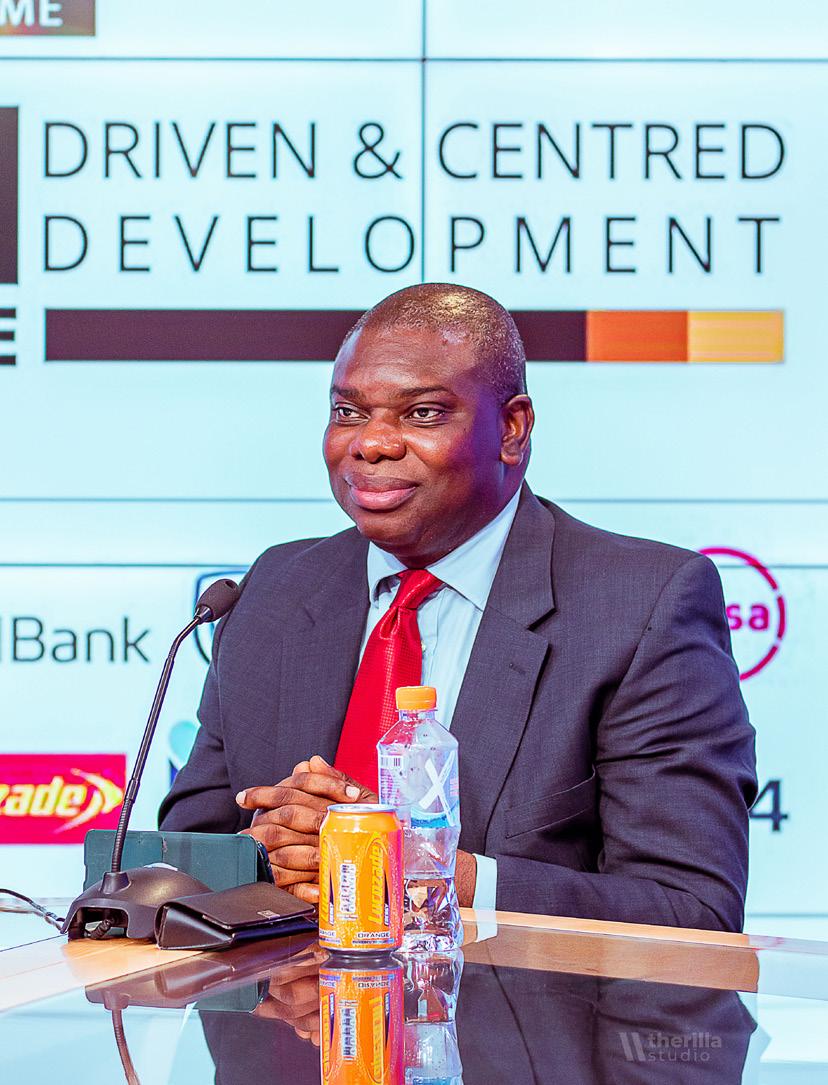

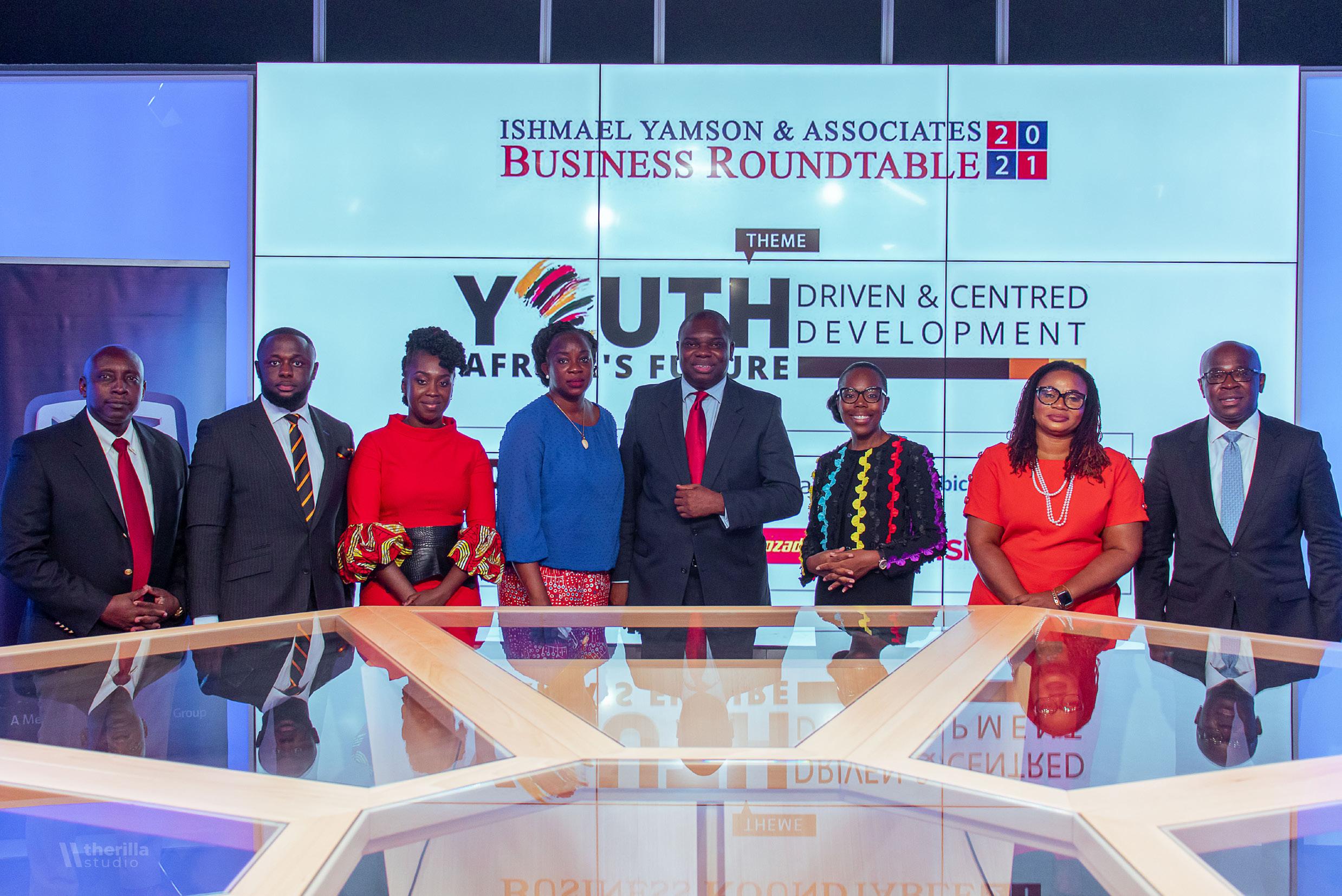
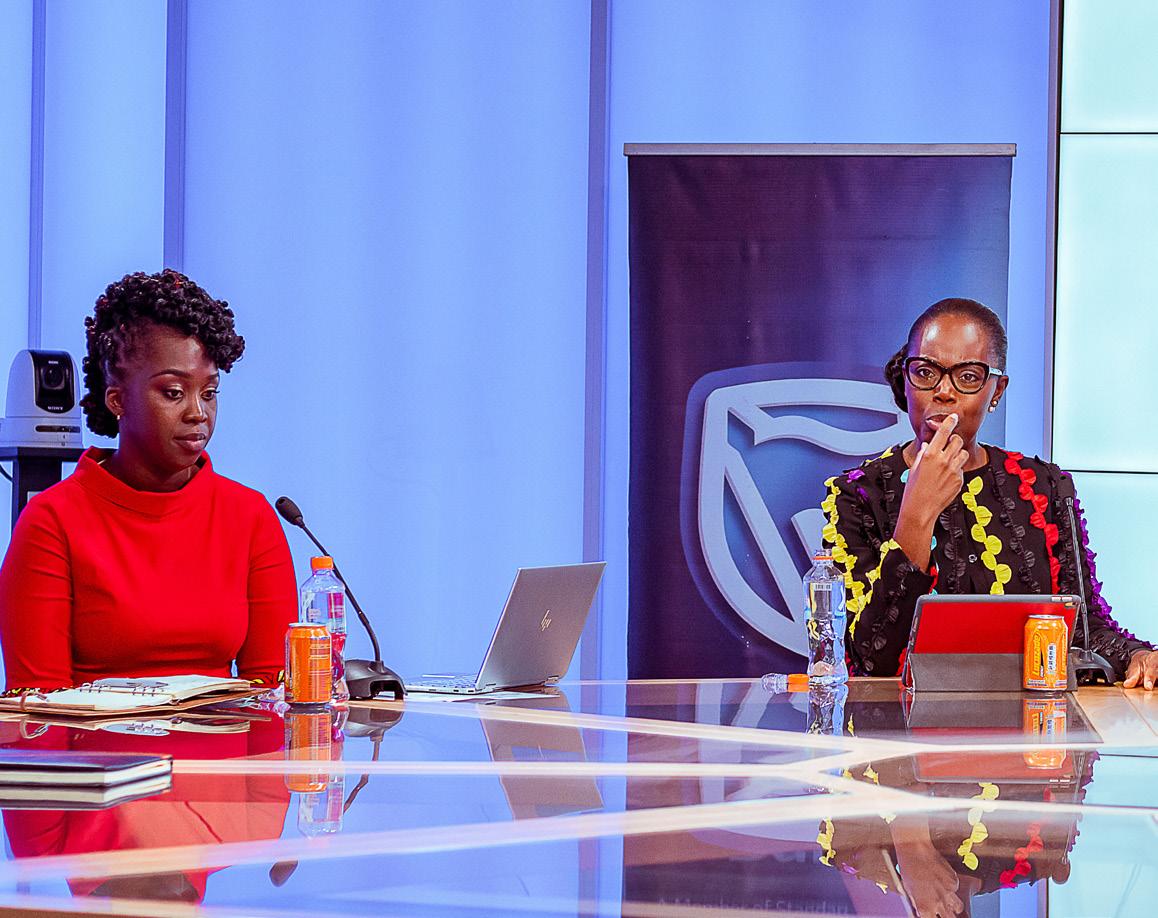



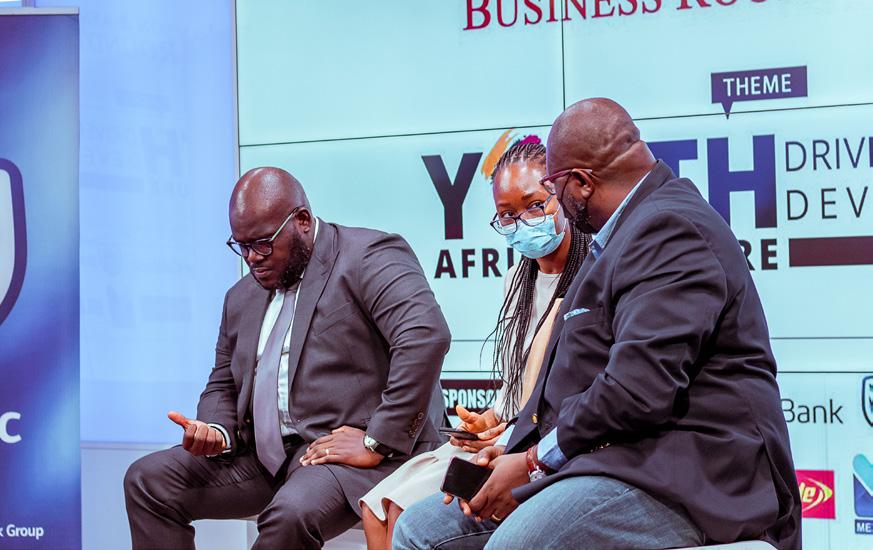
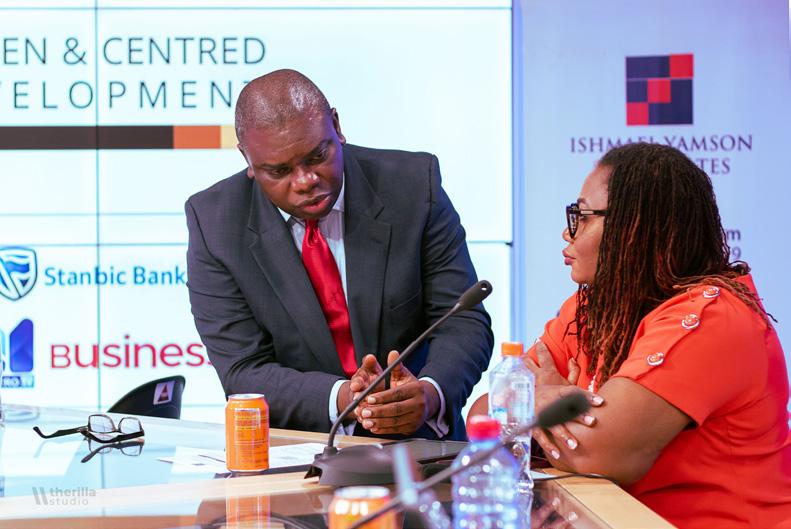
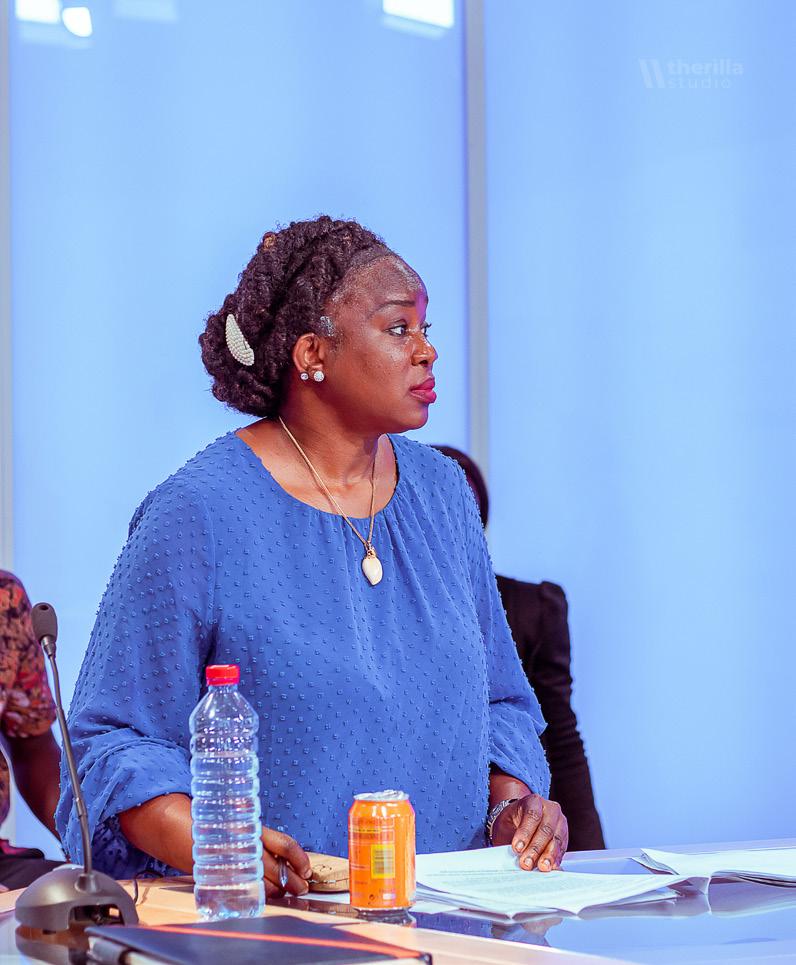
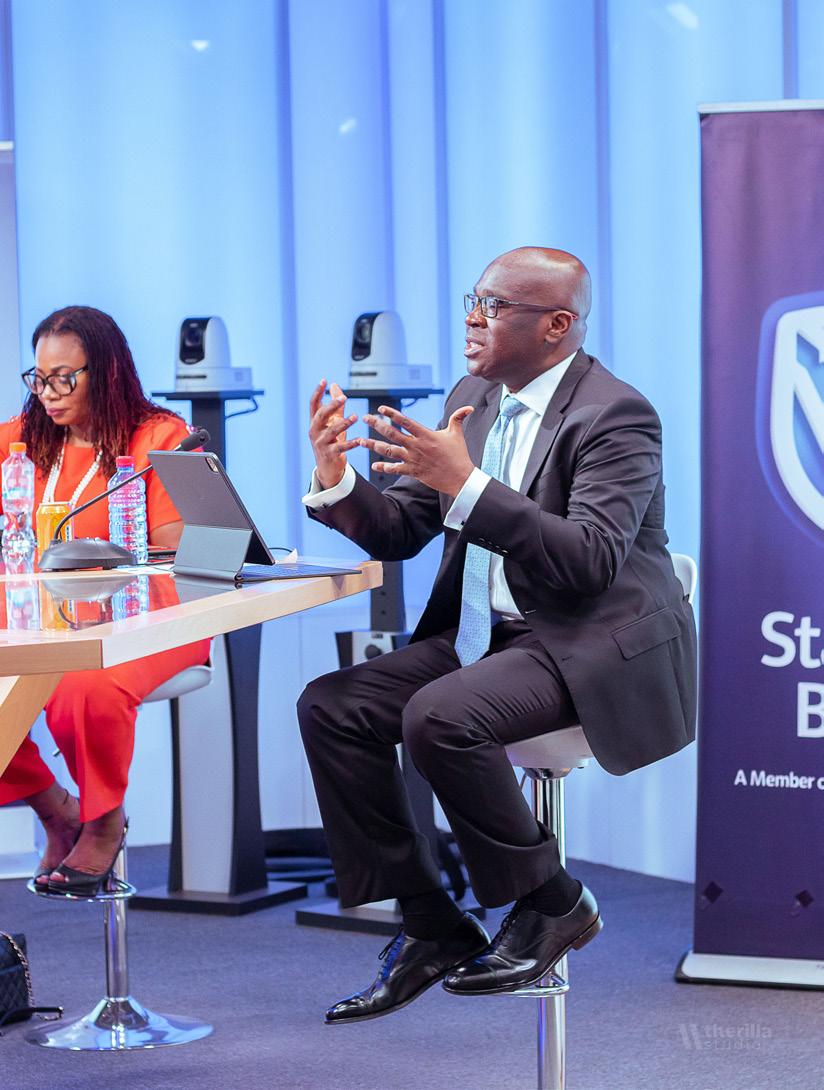


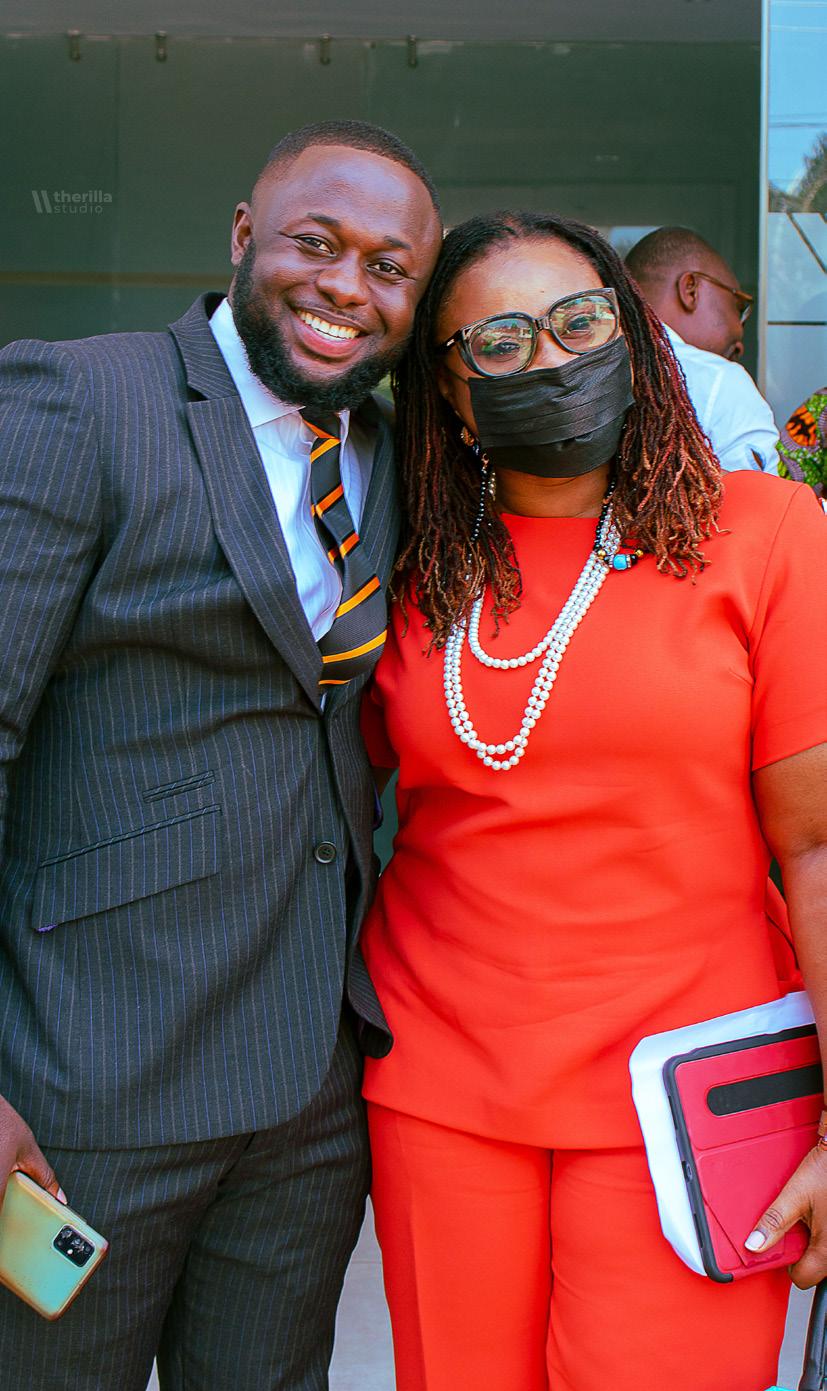
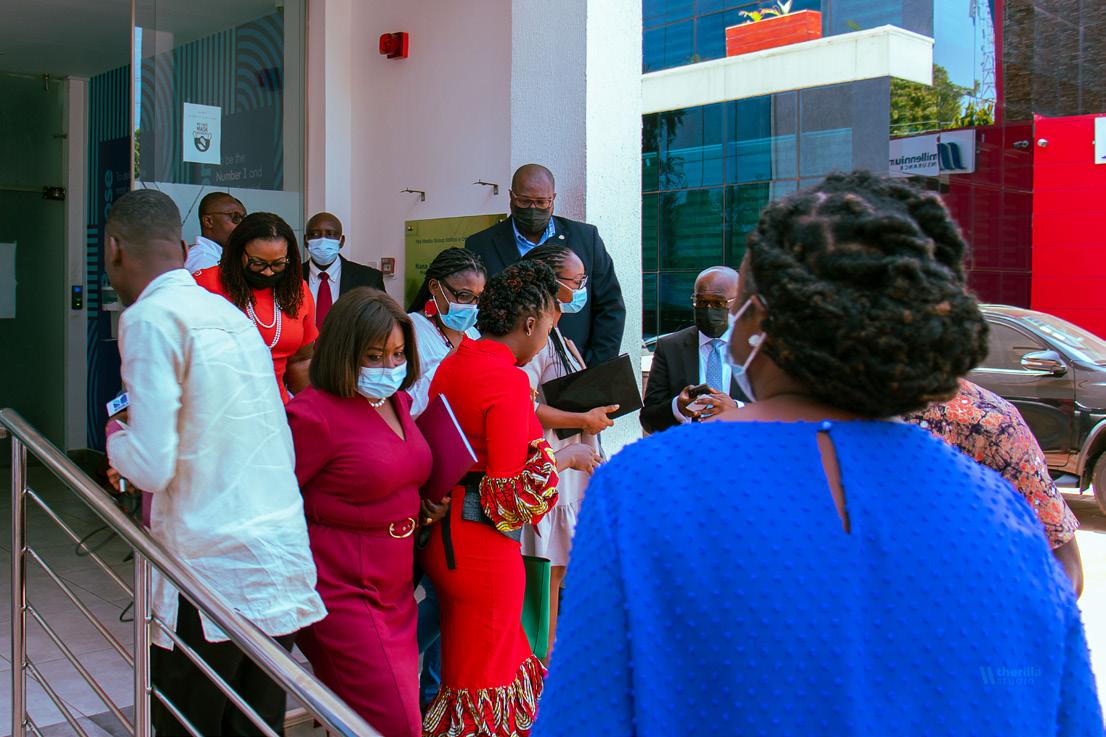


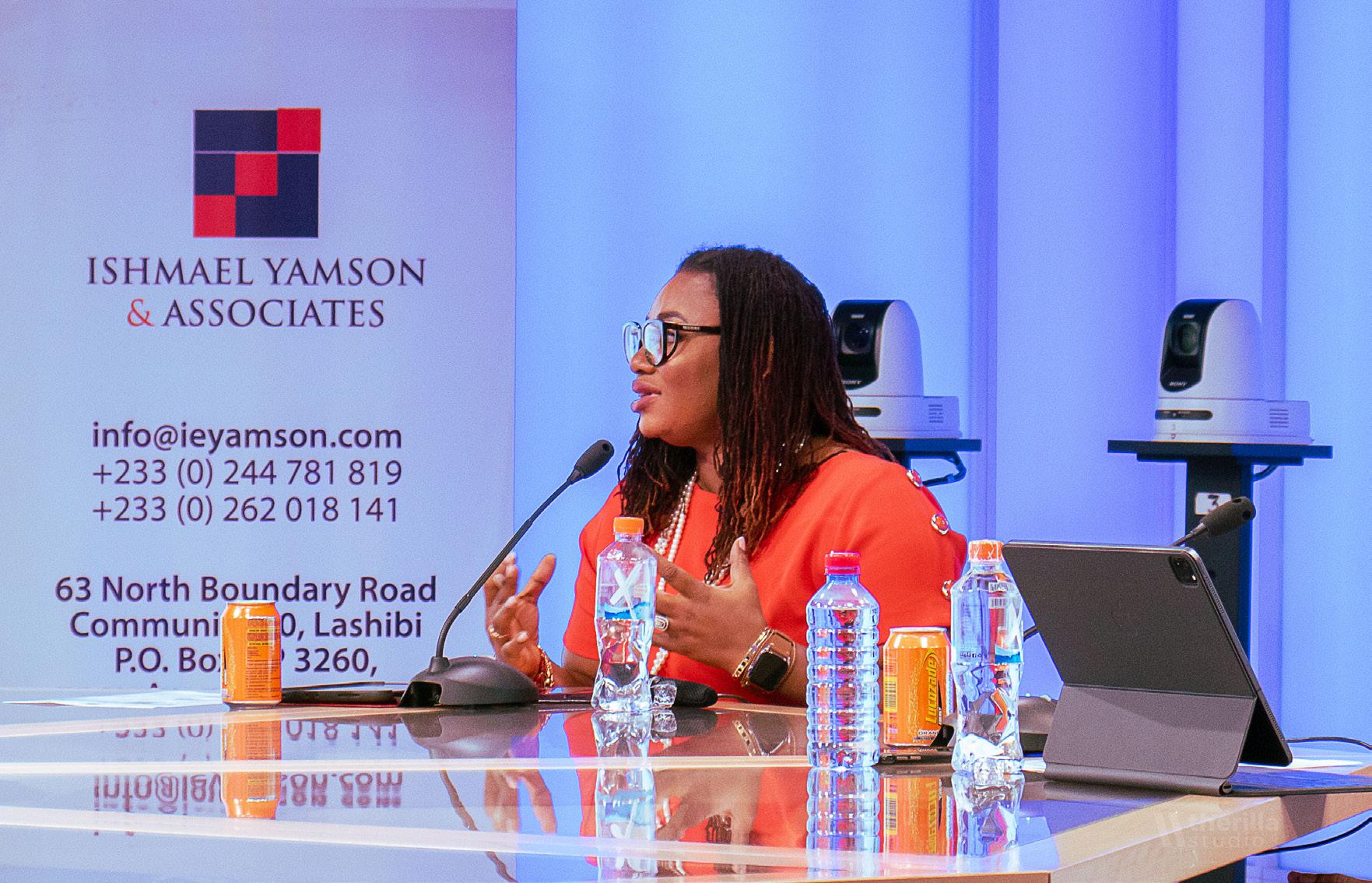
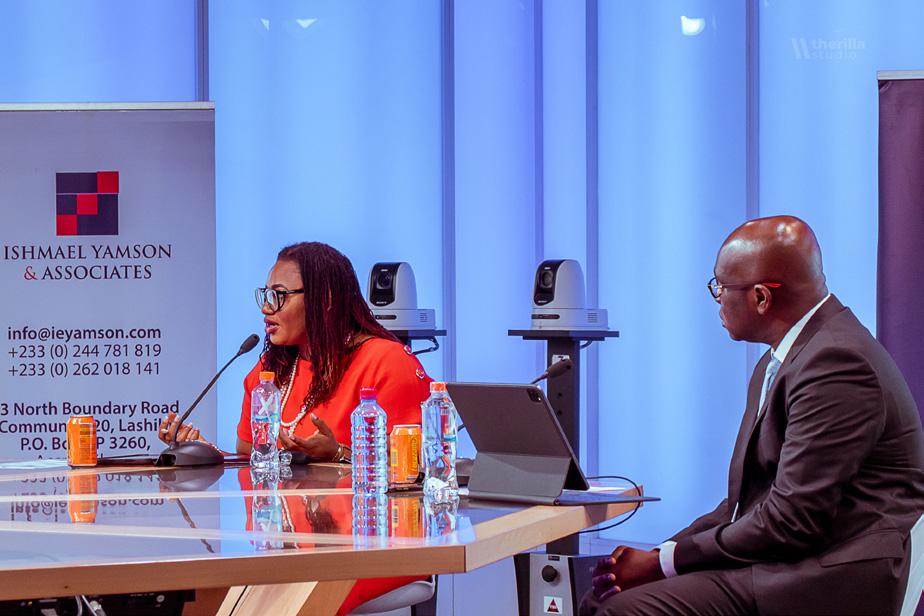




 Mrs. Sheila Naah Boamah Former Executive Secretary, NABPTEX
Mrs. Sheila Naah Boamah Former Executive Secretary, NABPTEX
Anyone monitoring the news on BBC, Joy FM, Citi TV/FM, Metro TV and the many print and social media platforms will notice increasing amount of news items on youth related unrest and arrest in Africa. Countries such as Nigeria, Kenya, South Africa and our Country have recorded their fair share of issues related to concerns from the youth of the Continent. I find it therefore very useful that we are investing some time to reflect on the theme.
It is common knowledge that Africa and many of its member countries including Ghana are endowed with natural resources e.g. oil, gas, diamonds, gold, and many other cash crops. Irrespective of being rich in natural resources, we perform very poorly in global indicators that measure the quality of our human
existence e.g. levels of poverty, access to good quality social amenities education, health, water, electricity, and waste management.
To illustrate this contradiction, Africa has been renamed, it is therefore not unusual for Africa to be openly called “The Sleeping Giant” or “The Dark Continent” at important national or international forums. In fact, many African Countries with natural resource reserves have been diagnosed as having contracted the Dutch Disease also called the Resource Curse/ Paradox of Plenty or the Poverty Paradox.
As a Continent, our inability to utilize our rich resources in ways that transforms our economic fortunes as compared to countries with low levels of natural

resources is what is earning us such negative publicity. (The reasons for our inability we must leave for another day). It is also this same issue, that is creating what I call the “Human Capital Liability” or “Youth Dissatisfaction Syndrome” we are currently experiencing across the Continent. Just like gold dust has little value yet processed gold commands premium value, so would we need to invest in the human capital resource of our continent to give it value. Human capital value addition in Africa would have to be planned for from birth.
It should not come as a surprise to anyone, if you find out that some 50 years ago, a similar group converged to plan for the ideal Africa of today. If we are discussing the same topic today based on the increasing need to examine youth cantered development in Africa, than perhaps it is safe to conclude that, earlier attempts did not yield their intended objectives.
Many of the things we will say today will not be new, what CAN be new, is if we succeed in developing measurable actions that will be considered for implementation by the relevant institutions. It will also be new if we can take a keen interest in monitoring and accounting for progress after today.
50 years ago, the population of Africa was 380 Million people. Today we are 1.37 billion people with over 70% of this population being below 50 years old. In Ghana, a similar situation exists. 50 years ago, we were just a population of 8 million people today we are over 31 million people with over 97% of the 31 million population being below 60 years and only 3% being above 65 years old. The population dynamics against the evolution of our development for me is critical to understanding the way forward.
Let me add that even though the United Nations, defines youth as the age between 15 and 24, it goes ahead to add that the 15-24 bracket is a statistical tool and for the purposes of planning, Youth can be defined as a period of transition from the dependence of childhood to an adulthood’s independence.
My presentation on the theme will follow the format below;
• The Evolution of Development & Our Economic Fortunes
• The role for Education
• The opportunities to harvest
• The Gaps to overcome
• Conclusions
The real resource for every Africa country are its human resource, and like many resources, real value is derived when it is processed. Innovative means must be employed to harness the potential value in the over 800 million youth population in Africa. Ignoring or deferring action any further could only transfer the cost from value addition to other areas such as security, social assistance benefits, and rehabilitation.
The fact that the youth of Africa are largely unemployed and wasting is not lost on anyone, neither is the fact that the world around us is changing fast and we may not be responding fast enough. What may not yet be certain will be the medium term impact of the changes revolution on a largely ill equipped youthful population in Africa.

According to available research, decolonization in Africa started between the mid-to-late 1950s to 1975, interestingly whilst this was the time Africa was taking control of its affairs, the world’s industries were in their third Industrial Revolution.
I find it appropriate to seek answers to the present state of affairs in Africa by looking back at when we joined the race. The third Industrial revolution was underpinned by high-level automation, electronics, telecommunications, Computers, space expeditions, research, and Biotechnology. The era had also already developed Programmable Logic Controllers (PLCs) and Robots were in use. Developed Countries at the time of decolonization of Africa had discovered solutions and capacities that powered the first, second, third and now the fourth industrial resolution.
Investment in education then and now in many African Countries was not structured to produce technical and or research capacity that would equip African youth to be significant participants in generating the technologically driven solutions of the continent or the globe for that matter. This assertion is confirmed by looking at our GDP performance and growth poles over the period.
For colleagues who may not have economics background, GDP is the final value of the goods and services produced within the country over a year, and the trends suggest a lot of room for improvement. Such improvement could form the basis for creating modern decent jobs for the youth.
Connecting the youth in Africa to decent work will require investing in quality education from the basics level and beyond. Even through education should be key, other sectors of such as the quality of health, nutrition and shelter cannot be ignored in our context.
Decent jobs will enable the youth in Africa to be economically and socially independent. Education, reskilling and retooling where applicable would be important factors in addressing youth centered development in Africa.
We must support investment in quality education from the basic level to the highest levels to promote labour mobility. Existing interventions in education, such as the scholarships, loans, study leaves with pay etc must be repackage as incentives to promote studies in areas we have short supply such as mathematics, science, engineering and ICT.
As a way of promoting reskilling in the underemployed or unemployed adults, self-directed acquisition of new skills from credible on-line providers can be introduced as social assistance job placement programs. After many attempts to improve education systems in Africa, opportunity is still available to inject appropriate educational technology as a solution to expanding access; however, we must always be mindful of avoiding the problem of procuring equipment ahead of preparing the teachers or content for appropriate integration of digital skills into existing curricula.
With the experience of Covid-19, the improvement in logistics enables virtue trade and intensifies market competition. We must be clear which areas we can compete globally in, and invest in growing that sector. If I have to hazard a good guess, I will still think we can grow a global advantage around Commercial Organic Agricultural, Agro processing and Distribution.
A commercially viable agriculture sector aimed at a significant global market share would create significant space to absorb many of the youthful population in descent and modern jobs.
Drawing from the contribution of Agriculture to GDP in Ghana, the relatively low performance at low 25% makes a strong business case for its growth.
The gaps to overcome are multi-sectorial. Planning for the needs of the large youthful population in Africa and Ghana must be informed by our unique population dynamics and the global technology dynamics.
Starting from the basic level, orientation processes can be used to orient teachers to deliver education using methods that develops the soft and ICT skills of the children. Teachers, can also be tasked to submit projects that support the use of these skills in the classroom as a promotion requirement for progression. Our polices and incentives must be directed at closing the capacity deficiencies in mathematics, science and engineering from the basic level.
As a Continent, we want to believe that we are doing well under the circumstances, but when our colleagues from other Continents and Africa openly call us, The Sleeping Giant or Dark Continent, it tells us a lot more is expected of us. We may have to stop celebrating little cosmetic victories and pay attention to addressing our existing structural gaps. Without a doubt Africans have demonstrated they are capable, this fact is proven when people of African descent have delivered equally good results in places where the right conditions exist, so Indeed We Can.
We have the fastest growing population in the world and the decision to transform our human resource into asset or a liability will remain ours. Let us invest appropriately in the human resources of the Continent to rip the dividend from our youthful population rather than pay high social and financial cost on the population. In conclusion, let me say, GIVE the youth of Africa fish and you feed them for a day. Equip them to fish and you enable them life time.


Kelvin Doe is a 26 year old Sierra Leonean engineer and inventor. He is known for teaching himself engineering at the age of 13 and building his own radio station in Sierra Leone, where he plays music and broadcasts news as “DJ Focus.” He was one of the finalists in GMin’s Innovate Salone idea competition, in which Doe built a generator from scrap metals. Doe would constantly use discarded
pieces of scrap to build transmitters, generators, and batteries, as well.
He is the youngest person to participate in the “Visiting Practitioner’s Program” at MIT. His accomplishments were documented by RadicalMedia and presented on their corporate YouTube channel. When the video went viral, the story was picked up by CNN, NBC News, and The Huffington Post.
Today, Kelvin Doe is one of the most respected young African inventors. He has had the opportunity of meeting various leaders of the world. He was a TedEx speaker and has also spoken to young people in Africa on different platforms. In 2016, Kelvin Doe became an Honorary Board Member of Emergency USA, an organization with a mission to provide free medical and surgical care to the victims of war and poverty.
Mr. Samuel Kumi Ayim CEO of Focus Life Group, Founder and CEO of Centre for Transformational Leadership in Africa (CTL Africa); Corporate Lawyer; John Maxwell Certified Leadership Coach, Teacher and Motivational Speaker; Ghana Cohort Facilitator of Breakfast Club Africa.Like Doe, there are several isolated success stories of young Africans demonstrating the historical resilience and creativity of the African. There are records of several Africans excelling in different fields of endeavour across the globe. The perplexing question is: why are these stories of excellence not commonplace among the African youth, indeed among the general population on the continent? Most young people in Africa feel dis-empowered, and generally lack the confidence (and the necessary environments) to express their enormous creative potential. What can we, particularly adults and leaders of today, do to change the narrative and power rapid development of the continent? We suggest here a re-engineering of the consciousness of the African youth. Re-engineering the consciousness of the African youth, supported by pragmatic pro-youth policies is one sure way to ensure a better future for Africa.

The problem of Africa’s underdevelopment is largely a mindset and heart set matter (consciousness). The solution, therefore, lies, largely, in change in mind-set and heart-set. (Consciousness Re-engineering) .
it can be empowering as it can be crippling. How we think and feel affect the way we behave, thereby generating consequences which we see around us. Vishen Makhiani in The Code of the Extraordinary Mind refers to belief systems and practices as models of reality and systems of living, respectively. According to him, these two must be upgraded constantly to help improve our lives. Their consciousness has to be re-engineered if a different behavioural outcome is to be expected. A people’s culture stems from their collective consciousness, i.e. their level of awareness. This awareness stems from the people’s socialization, which consists of the formal and informal, intentional and unintentional ways by which culture is transmitted from generation to generation, particularly through early upbringing methods. In Cultures and Organizations, Geert Hofstede calls the process of socialization, mental programming. Makhiani on the other hand calls it, consciousness engineering. Both argue, in computer language/terms that cultures must be constantly upgraded as they constitute the software of the mind.
The often discussed problems of Africa are all symptoms of a faulty consciousness: cronyism, tribalism, and elite political state capture; mismanagement of national and organizational resources; corruption and pure stealing of national, organizational and individual resources; teeming youth unemployment and frustrations; preference for foreign products and adoption of foreign methods of resolving our problems; poverty, disease and despair; dangerous migration of the youth across the Atlantic Ocean, and so on and so forth are all largely a result of culture, developed over many years, particularly during the past five centuries.
The true problem is a people who, bereft of any selfesteem, self-value and self-love, are looking constantly for the solution of their problems from an external source - a superior being, spiritual powers, or white-man. Not being confident in our own abilities, we are constantly looking for a miracle from somewhere, even though God has endowed us with all we need to develop our continent.
What are some of the causes of this dis-empowering collective consciousness of the majority of our people? Aspects of our traditional beliefs and practices, historical disruptions such as colonialism and slavery, authoritarian and corrupt post-colonial leadership and the kind of formal educational systems we have adopted over the years have all contributed to the wrong mind-set, wrong world view, and wrong beliefs which have in turn weakened our willpower to make the drastic changes necessary (poor heart-set) to transform our societies. In other words, the root cause of our problems is unhelpful beliefs deeply ingrained in our consciousness (‘backward’ consciousness) or ‘backward’ rules (Brules… courtesy Vishen Makhiani - I can’t use his word for the B here so I use backward).
Centuries of colonialism, slavery and authoritarian power have exploited and subjugated the African and systematically inculcated in our consciousness that everything about our humanity and culture is inferior. Post-colonial political and corporate leadership at all levels have continued to perpetuate this Afro-pessimism as our leaders adopted the same subjugation posture of the colonialist. Post-colonial leaders exercised absolute power over the people through the new African elites who had become the new colonizers, continuing the exploitation of our resources for selfish gains and perpetuating social injustice. The post-colonial political system is characterized by the destruction of opponents, military and police brutalities; caning of students and lecturers delighting in the poor performance of students in exams; amassing corporate and national wealth for self, family and friends and syphoning them away in foreign banks, just as the colonialist did. We continue to borrow like there is no tomorrow, only to squander the loans and keep piling up debt for the next generation. One judge in Ghana has described this corrupt political system as ‘create;
loot and share’. As the system is rigged against the youth, it has created a dis-empowering impact on their consciousness. They can only play along in the system or run for their dear lives to perceived greener lands.
Our youth, all over the continent, do not see any hope. They seem deprived of any confidence not only in their national systems, but in themselves as well. How can we expect a person of no sense of value in their self to feel capable of creating anything of value?

The solution to empowering our youth is not in providing them the same dose of failed solutions - jobs, certificates, handouts, tokenism of political appointments, beautiful policy statements honoured only in their breach, etc. All of that is good, but not sufficient. The solution lies in consciousness reengineering. We need concerted programmes that will reach and fundamentally alter the sub-conscious programming of our youth. This is a sure way we can truly empower the youth and guarantee a better future of accelerated development of the continent. As Dr. Joseph Murphy states in The Power of the Subconscious Mind, “Every thought is a cause and every condition is an effect…the world within creates the world without… If you want to change external conditions, you must change the cause. Most people try to change conditions and circumstances by working on those conditions and circumstances. This is a terrible waste of time and effort”.
To re-engineer the consciousness of the next generation of leaders, we need to deliberately inculcate new belief systems and systems of living. Vishen Lakhiani in his book, The Code of the Extraordinary Mind, posits that “extraordinary minds do not seek validation from outside opinion or through the attainment of goals. Instead, they are truly at peace with themselves and the world around them. They live fearlessly - immune to criticism or praise and fuelled by their own inner happiness and self-love”. That is the kind of new African youth we need if we are going to have any hope of accelerated development.
The following are a few of the re-engineering points we need to work on (the list is endless):
a) Re-engineer from ‘nothing good can come from the African or the black man…” to “God created the African with equal intelligence and abilities and s/he is therefore capable of achieving anything that any other race have achieved.”
b) “The White man is better than me and therefore deserves my respect…” to “God created all races equal who deserve mutual respect and none should be subject to the other irrespective of their state of development.”
c) “Education is only to acquire a certificate so I can get to a job…” to “Education is of value in and of itself and its purpose is to make me a better person so I can make meaningful contribution to my society.”
d) “God will do everything for me, all I have to do is to pray...” to “God has endowed me with wisdom and power to change my circumstances; God won’t do for me what I can do for myself.”
e) “Everyone ‘chops’ from his work…” to “I have to take only what I am legitimately entitled. It is my responsibility to protect the corporate resources not to abuse it.”
f) “We don’t eat honour and integrity…” to “Integrity and good name are better than undeserved riches.”
g) “Somebody, my parents, my company, my government is responsible for my wellbeing...” to “I am responsible for my own well-being and that of others. I must always look for what I can do for my country not what my country can do for me.”
h) “Time is just a range so hours and minutes don’t really matter…” to “Time is life and I must take it seriously. I ignore it to my own detriment.”
Two Critical Recommendations:
1. Fundamental Transformation in Educational Systems -
Transformation, both in content and in methods of instruction to fundamentally re-engineer the consciousness of the next generation of our population. Increasing enrolment is necessary. Reducing youth illiteracy is great. Expanding access to education is wonderful. But the fundamental question is: what are we teaching in the schools? We need to design curricula that will free our minds from the subjugation of our previous colonial masters and to instil the pride of the African in our mind-set. We need education that will focus on using and transforming our rich natural resources to free us from the perennial problem of being producers of primary commodities for others. We need educational systems that produce the workforce we require to develop and to create wealth for ourselves. African educationists and other leaders need to design a set of content and methods of instruction that are relevant for addressing our challenges, the African way.
Our educational systems should focus on developing in our youth, ‘Applyable’ Skills, Not Just Employable SkillsYes, our system should be dynamic to reflect the needs of the market place and make our youth competitive and holistic in the current global world. But emphasis should be placed on training our people to be able to make use of the natural endowment of the continent as well as capable of using the modern technologies, i.e., with skills they can use immediately even while they are in school to create wealth for themselves and for the countries. These should include technical skills such as carpentry, masonry, dressmaking, farming, building and construction, etc.
The new educational system should be an environment for re-engineering the consciousness of the youth and embody the values we wish to promote as a
society: self-worth, purpose-driven living, emotional intelligence, leadership, creativity, innovation, critical thinking, problem solving skills, proper purpose of leadership etc. African history and values should be taught with emphasis on aspects that are progressive and self-empowering and critical review of those that are outmoded, counter-productive and dis-empowering. African heroes/heroine and achievers such as Kelvin Doe should be celebrated.
The most powerful message of empowerment of the youth is adult example - walking the talk. We cannot continue to speak virtue to the youth and practice vice on a daily basis. Action, it is said, speaks louder than words. What are our actions teaching the youth? The youth need integrity in their adult leaders more than they need jobs.
Everything rises and falls on leadership. Daron Acemoglu and James Robinson in Why Nations Fail, the origins of Power, Prosperity and Poverty, identified political systems as the main catalyst for development or underdevelopment. Who runs the current political systems? Who is reinforcing the dis-empowering consciousness? Adults! So it starts with us, the adults.
I conclude where I began: The problem of the African youth is largely that of mind-set and heart-set. We need deliberate policies to intentionally inculcate empowering ideas into the consciousness of the youth right from the home through to our formal educational system. We need to re-engineer the consciousness of the African youth. This should start with the current adults and leader figures living those values and ideals in their daily endeavours.

 Mr. Kwamina Asomaning Chief Executive, Stanbic Bank Ghana Limited
Mr. Kwamina Asomaning Chief Executive, Stanbic Bank Ghana Limited

The focal point for discussion is ‘preparing Africa’s youth for the future.’ In discussing the topic, I will draw on a few of my experiences growing into adulthood, and how these experiences have helped to shape my world view and influenced my decision-making as I transitioned from being a dependent to a provider. Finally, I will share my perspectives on some of the adjustments and interventions that I believe we need to make as a country to improve the lives of our youth and increase their contribution to our nation building process and to the continent as a whole.
Upon my relocation to Ghana from the United States in 2010, I accompanied my father on a visit to his hometown. As we walked by a cluster of houses that served as family homes for his parents and a few of their siblings, he introduced me to various people who were either his cousins, or the children of his cousins. As I reflected on the visit on our way back to Accra, two things struck me:
• First, the fortunes of my generation of cousins were different across the various households and you could attribute the outcomes of the lineages to the pursuit of education or the availability of opportunities to undertake vocations.
• Second, for those cousins whose grandparents had taken it upon themselves to support their siblings to educate their children or provide them with vocational opportunities, those households had fared better.
Not only did this experience remind me of how blessed I was to belong to my lineage, but also, it brought to fore the need for the country to develop both formal and informal support systems to boost its productivity. As I have pondered further on the challenges confronting our youth in the period since that encounter, I find myself categorizing our youth into three buckets:
• Bucket 1: Those in very deprived financial circumstances or for whom education isn’t practical for various reasons, such as those who are academically challenged but gifted with their hands;
• Bucket 2: Those in positions where the ability to pursue formal education is truncated after the completion of basic education; and
• Bucket 3: Those fortunate enough to have opportunities for formal education and employment but cannot afford to rest on their oars; they must constantly evolve as the world evolves.
My life story as a youth played out largely in the third bucket. I grew up on a university campus, and so the pursuit of advanced education was never a negotiable topic. But more importantly, the early guidance that my siblings and I received from our parents, both of whom have a science, technology, engineering and mathematics (STEM) background, to pursue the STEM subjects in secondary school enabled us to have a foundation that has proven quite useful and exceptionally adaptable.
After studying Physics, Chemistry and Mathematics for my A levels, I managed to switch quite easily to Business Administration at the University. This switch was my response to the evolving trends around me at a time when the world of Finance was opening new opportunities.
Yet, I would argue that quite a large proportion of our youth in Ghana fall in the first and second buckets. At the risk of belaboring the point, we all know the role that poverty plays in this predicament of ours. Unfortunately, the rate of poverty reduction has slowed in Ghana, becoming almost insignificant after 2012.
According to the Open Knowledge Repository, a subsidiary of the World Bank Group, the largest reduction in poverty, 2 percent per year, was reached from 1991–1998. Subsequently, the rate of decline fell to 1.4 percent in 1998–2005, 1.1 percent in 2005–2012, and further dropped to 0.2 percent per year between 2012 and 2016.
Some of these poverty-related problems bedeviling our youth are being solved with interventions such as Free Compulsory Basic Education and now Free SHSinterventions that have also had been frustrated by the lack of appropriate infrastructure.

The first step on this remedial journey is the provision of quality and relevant education that does not only respond to the exigencies of today’s world but also, prepares the minds of young Africans for the future. If we look to the world around us, the heads of some of the most successful companies in the world - Amazon’s Jeff Bezos, Apple’s Tim Cook, Google’s Sundar Pichai, AMD’s Lisa Su, Tesla’s Elon Musk have one thing in common: They’re engineers – they have had rigorous training in mathematical and scientific approaches to solving problems, and are not too shy to get into the technical details of the product or service.
It is from that perspective that there is, within the situation of this discussion, a strong push to rebalance our educational structure towards STEM subjects. Further investment in STEM education will unlock the abilities of African countries to produce youth with strong technical and analytical capabilities that can develop home-grown technologies to address uniquely African problems.
In a July 2013 working paper on Tertiary Education and Industrial Development in Ghana authored by researchers working jointly with the Institute of Statistical Social and Economic Research (ISSER) and the International Growth Centre, the researchers explored the mismatch between the skills of graduates and the needs of industry. They found that of the firms surveyed, 84% cited analytical, problem-solving, and decision-making skills as the important skills expected from University graduates. Yet, 81% of respondents indicated the existence of gap between the skills supplied by tertiary institutions and their requirements. While acknowledging that a university education, no matter the course, equips us with critical thinking skills, we must understand that these skills are not an end in themselves. Invariably, the gap in skills and the loss of flexibility that arises from earlier choices by students to avoid some foundational courses in school compounds the school-to-work transition challenges.
To our second pillar, I am sure we all know the famous proverb which goes as follows:
“Give a man a fish, and you feed him for a day. Teach a man to fish, and you feed him for a lifetime.” Beyond developing a purposeful approach towards STEM education, African countries must also place greater emphasis on higher vocational learning and disabuse the minds of the youth that the university title and university route are an assured path to achieving career success.
Experts point to a correlation between youth having experienced vocational training and youth employment. This explains why the debate on the merits of converting our polytechnics into technical universities continues with great intensity. Yet I would argue that the role and importance of Technical and Vocational Education and Training (TVET) as a means of equipping our youth with technical skills isn’t new to us. Until the conversion of eight out of the ten polytechnics into technical universities, Ghana had one polytechnic in each of the ten erstwhile regions, named after the regional capitals, such as the Accra Polytechnic in Accra, and the Ho Polytechnic in Ho.
To the best of my knowledge, however, the number of technical universities or polytechnics has stayed flat at ten for the last two decades. However, the number of universities increased from just three in 1990 to 70 in 2014, with many of these focusing on the humanities and liberal arts programs. Can we for example, attribute the difficulty in finding competent plumbers in Ghana, to the fact that we have not witnessed a rise in the number of polytechnics or schools for higher vocational learning in the country?
Aside providing avenues for students to complete their national service engagements, ladies and gentlemen, the private sector must embrace apprenticeships for young people as its non-monetary contribution to society. These placements could be done alongside
the existing monetary contributions that firms extend as part of their corporate social responsibility activities. Government policy must be geared towards establishing a lot more technical schools that train JHS and SHS school leavers and graduates with relevant technical skills that are sought after by industry and society. At this point, I would like to commend the Commission for Technical and Vocational Education for their annual Skills competition. It is only through such deliberate acts that the youth will be equipped with skills that match the requirements of industry, and provide a pathway to industry for students not interested in pursuing a university education.
To illustrate this point, we can look to other parts of the globe such as the UK and the US, where a National Apprenticeship Week (NAW) is observed. This is a convening of business leaders, career seekers, labor, educational institutions, and other critical partners to demonstrate their support for apprenticeship. The weeklong celebration also provides apprenticeship sponsors with the opportunity to showcase their programs, facilities, and apprentices in their community. The celebration highlights the benefits of apprenticeship in preparing a highly skilled workforce to meet the talent needs of employers across diverse industries.
The way forward - How has Stanbic helped the Ghanaian youth to realize their dreams?
At Stanbic, our Group purpose is “Africa is our home and we drive her growth.” Driving growth requires us to invest in the future of our youth. Hence, in August 2019, we launched one of our most significant Corporate Social Initiatives - the Stanbic Bank (SB) Incubator - to provide business advisory, coaching & mentorship, and market access facilitation and networking opportunities to aspiring entrepreneurs and startups in Ghana. Through the bank’s Staff Volunteer Mentorship program, the bank’s staff offer their expertise and time to members of the SBIncubator Community.
Although COVID impacted our engagements in 2020, we hosted 47 capacity building sessions impacting 2,498 participants. We also hosted fifty-two (52) coaching & mentoring sessions, 11 of which were held physically prior to the lockdown period. In total, 380 SMEs and start-ups were directly impacted through training programs. We also established and consolidated our partnerships with 18 strategic entities to create more value for the entrepreneurs. These partners include the likes of Reset Global People, Israeli Embassy in collaboration with Haim Gil-Ad, Ashesi Venture Incubator and the World Economic Forum Road to Davos Discourse among others.
Experience as we all know is the best teacher. A popular story is told of the inventor Thomas Edison. While he was working on creating the light bulb in his lab in New Jersey, a visitor to the lab expressed sympathy to Edison regarding the failed experiments and the lack of results. Edison countered by saying “I have not failed, not once. I’ve discovered ten thousand ways that don’t work.”
This story vividly illustrates why our talented youth need support to experiment, brainstorm and co-create as they embark on their entrepreneurial ventures. Solving practical problems requires funding, facilities, mentorship, and research centers to provide subject matter expertise on trends.
The importance of Africa’s youth to nation building cannot be overemphasized, given their numbers. In Ghana, for example, our youth population was estimated at 10 million in 2017, making up 35% of the country’s population. As I have posited above, however, the responsibility for ensuring that they contribute effectively to our nation-building process is a collective one, that lies with policy makers, educational and corporate institutions, parents, and the youth themselves.
It is my hope that through these conversations, we can devise workable solutions to increase focus and investments in vocational and technical training, through deliberate policies, financial support, effective career counselling, and subject choices at school.
Come on a journey with me; imagine this future. The year is 2050 and these are the headline stats on our beloved continent:
• Africa’s population is 3.6 billion, 3 times what it is today. The continent is abuzz with activity and if you think we have traffic challenges now, we really must think ahead. For those of you who might say, but 30 years is a long time away we still have time, let me put this into context. It takes 18 years, under the current system to educate someone to high school level, 21 to degree level and between 25 and 30 to professional level. So if we want to see these changes in the next generation, we need to start now.

• 25% of all of the world’s youth live amongst that 3.6 billion I mentioned earlier. Some people may see this as an issue…but remember, an educated, supported,

energized youth is a significant strategic asset. We will have the largest of this such population.
• 2 out of every 5 of the world’s children will be born to us in Africa.
• The potential presented by this, I hope is clear. We will have an increasing opportunity to build and create a prosperous future for ourselves if we act decisively now to guide, encourage and empower the youth to a better future. There a many considerations to be aware of; for example
• A growing population doesn’t necessarily lead to per capita income growth. That is driven by other things like; the ratio between the working & dependent population, or the adoption of technology to drive productivity.

• At the moment, we estimate 56% of Africans are of working age, this translates to a dependency ratio of 1.3 compared the global average of 2 workers to every dependent. Think about the impact here on the dependents and the resources available for them to thrive.
• Most importantly we must act now! If my point earlier on how long it takes to support someone to a professional level was insufficient this stat might help. The expectation is that Africa will reach 1.7 workers to for each dependent by 2054, still short of the global average of 2. We really do need to do something.
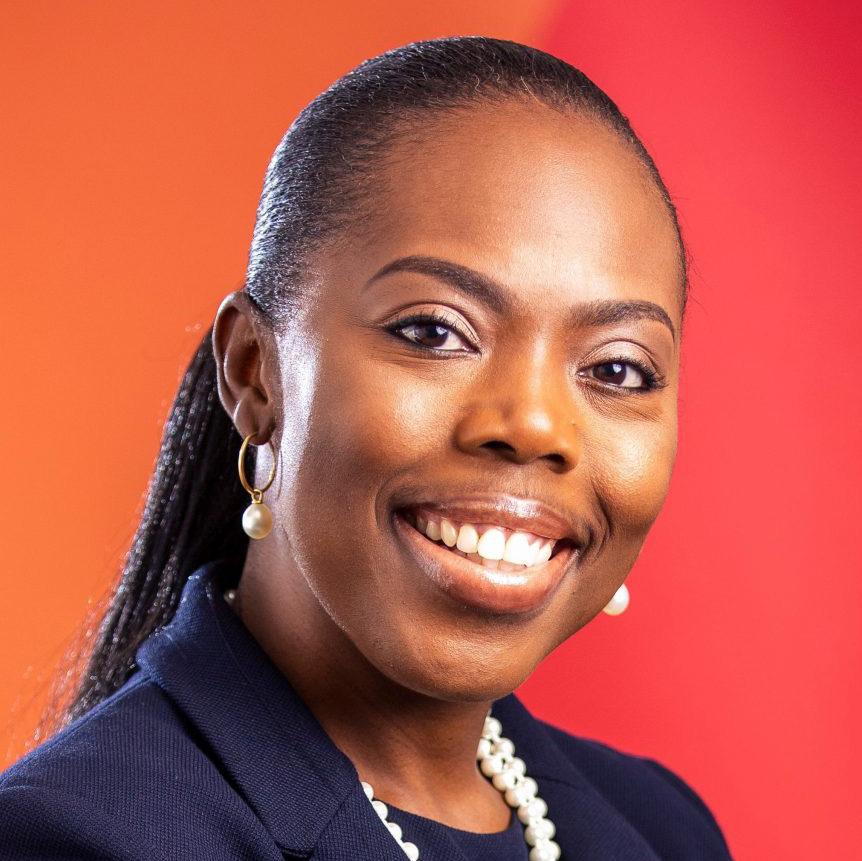
Some might say, but we have been doing a lot already; we’ve seen growth over the past few decades and started lifting people out of poverty. Yes, we have, but the growth is largely driven by increases in commodity prices (driven by demand from rapid industrialisation in China and other parts of the world) and not from value addition and technologically driven productivity initiatives on the continent. There are some examples and I will share some of these later, but the examples are isolated and have not made it as a way of living into the population at the pace we need if we are going to address some of the challenges posed by the future outlined earlier.
Consider that many of the productive youth are doing what they can to leave the continent and make lives for themselves elsewhere. In addition, for those who cannot leave, history has shown as recently as the “End SARS” campaign in Nigeria how countries can be destabilised when the youth think there’s no bright future and with the continent having increased penetration of mobile communication information gets around quickly. We really do have an opportunity here, to seize our future together as Africa, and with that in mind I want to offer 5 ways in which I think we can all help each other:
1. Implement a “Systems Leadership Initiative” in our schools, communities, organisations and governments.
Systems Leadership is about collaboration of a diverse but relevant set of stakeholders to address problems across a wide spectrum of society. At the core of this
initiative is recognizing that many of the issues we face are interconnected and they need different aspects of society to work together to solve them in a sustainable manner. Just imagine some of the challenges we have today around poverty, unemployment, infrastructure and technology, climate change and you can see that our approach needs to be holistic promoting a shared vision, building trust, innovation, and using multiple lenses to really build the Africa of tomorrow.
Ok, so how do we do it? To harness a Systems Leadership Culture in Africa, we must implement and adhere to a CLEAR framework for problem-solving in our communities, and in the public and private institutions. I see this in the following way:
• Convene & Commit: We need multiple stakeholders to work together. Create platforms that encourage open dialogue & constructive challenge among the stakeholders.
• Look & Learn: Stakeholders must be relentlessly curious and appreciate differences in experience and view points. Embrace this, knowing that to fully understand and solve complex issues, you must see its many dimensions, listen to new information and provide healthy challenge. Here we need to embrace, early on in our education systems a knowledge of our differences, together with an understanding that these difference provide many alternative points of view and are to be embraced as a way of tackling some of the tough challenges we face today.
• Engage & Energize: Leaders must consciously relate, build and nurture relationships among stakeholders. Redefine this element of the leadership role as being core the execution of development and not just for the electoral process.
• Act with Accountability: Stakeholders need to be able to demonstrate results and encourage mutual accountability for both individual actions and collective impact.
• Review & Revise: This is an ever evolving process. You learn from the outcomes and apply those learnings to strengthen the approach next time round.
Systems leadership eliminates the concept of silo problem solving and embraces collaborative problem-solving techniques through collective leadership. Governments & Leaders in African countries today must implement systems leadership initiatives in schools, public and private institutions as well as in our communities to harness a collaborative problem-solving mentality for the African youth in their formative years.

This is fundamental. We must match the growth in numbers, capacity and capability of our nations with productive businesses. It’s not just about jobs (as important as that is), it’s about empowering the energized youth referred to earlier to bring their ideas to solve our very real problems and in so doing creating wealth here on the continent for future generations. Some of the other benefits of large scale entrepreneurship include:
• Bringing an alienated and marginalized youth back into the economic mainstream as productive members of society. Turning them from a dependent in the 1.3 stat I mentioned earlier, to a worker supporting others in the same context.
• Helping address the socio-psychological problems and delinquency. Utilizing the innovation and productive mind power for positive impact in our society.
• As a continent, we must create entrepreneurs who then
create other entrepreneurs intentionally. A recent BBC Article titled ‘How a Nigerian scheme forged in War creates billionaires’ showcases how a Nigerian apprenticeship system (Igba Boi) gives young people a front row seat and practical experience by understudying a well-established entrepreneur after which the ‘Oga’ sets up the apprentice for future success. The success of the scheme has been adopted by some notable business leaders including the Zimbabwean billionaire Strive Masiyiwa who has recently been named Britain’s first black billionaire by the Sunday Times. Ideas like this apprentice scheme can and should be embedded firmly in our approaches to building the next generation. I’m sure we would need to study, identify gaps, mitigate risks etc., but what gives me so much hope is that we already have the answer amongst ourselves and the potential to give it life across the continent.
The Director General of African Development Bank, Akinwumi Adesina has proposed the establishment of youth entrepreneurship investment banks in each African country to focus on supporting young entrepreneurs. In Ghana, the set-up of DBG will help the private sector including young Ghanaians entrepreneurs have access to medium & longterm capital at affordable rates through their banks. At Absa, youth entrepreneurs are supported through Startup propositions that provide a number of start-ups with the education, financial support and skill set needed to grow and sustain a business. We are also active in sharing skills amongst the population on everything from cyber security to managing risk.
I have spoken about collaborative leadership and entrepreneurship. Next is something very close to my heart: agriculture. Structurally we know that the world will have to find more innovative ways of feeding itself. Africa has the largest arable land area (60%) in the world – this is a significant strategic advantage and we must promote economies of scale in agriculture to leverage this vital strategic asset and obtain a competitive advantage. We must change perceptions and get the next generation to see agriculture as the next cash cow. In 2018, during the Youth Employment in Agriculture summit in Kigali, a young lady challenged how agriculture was typically promoted, and advocated that to attract the youth,
agriculture must be advertised as an attractive occupation, capable to supporting families, and not a job for old people or those on retirement. She also urged key stakeholders to start projecting agriculture as the oxygen of African economies and not just the backbone. You may google ‘agriculture’ or ‘ministry of agriculture’ in your country and see the images that pop up – most of the images do not make agriculture an attractive venture for young people. Governments across Africa must ensure policies embrace modern farming practices, security of long term land title for the youth and improve logistics for food production and agricultural exports. Finally, we need to add value to the produce. This is where my point 2, on creating a culture to support entrepreneurship applies. Africa needs to create an uncountable number of “Niche Cocoa’s”.
Technology & digitization: Technology and digitization is the future and it is important that Africa consciously support its youth to venture into technology and dominate. Kenya has been praised for its tech entrepreneurs and other African countries can adopt their best practice. This continent needs to be a future hub of global growth not just African growth of techpreneurs. Technology and digital solutions create convenience that enhances customer experience, delivers efficient service, supports business diversification and evokes innovative solutions. Africa must nurture and multiply Tech entrepreneurs like Sacha & Tunde, the founders of Jumia.
Over the last 50 years, Ghana and Ivory Coast have manually harvested and dried cocoa. Recent reports show the Chinese have used technology to increase productivity. It is time to support the youth with the right technology for rapid expansion of cocoa production and manufacture products to international standards.
This is where we bring it together. Often an emotive area, this is pivotal for all the other areas above to really work. Think about this as a multiplier for collaborative leaders, for entrepreneurs, for technologists and manufacturers. The current system of education, where children enter primary school, go onto secondary and tertiary if they are lucky, is significantly outdated and does not pass down the practical experience so many of our more mature population have to share. We need first, confidence in ourselves, in our history and faith in our future. Then, second a willingness
to deliver this insight and experience in a meaningful way at an appropriate price. The Khan academy, an online platform where you can learn anything from art to zoology is one such example. Imagine leveraging such tools, modified for language and context, that would enable any student with a 2G / 3G connection to be able to watch online lessons and go through worked examples. Imagine our telco’s providing the spare bandwidth overnight to allow these devices to download the material for use later in the day, imagine what we could achieve with what we had today.
Consider an exam that meant instead of repeating something learnt in class, you had to take what was learnt in class to solve a set of everyday problems. The levels of complexity in the problem can be increased to account for those who would normally have higher marks. The focus here is on applied ideas and approaches that will have real impact as part of a productive workforce. Imagine the potential ideas that may also result from millions of youth minds trying to tackle some of our most challenging issues.
Workplace skills are something often overlooked when educating our young. This is the “how” of the workplace; it is the ability to form coalitions behind ideas; it is the presenting and defending an argument; the skills of judgement and risk awareness. This is where we need our current institutions and companies to set an appropriate example and show our youth how it’s done. It’s not something that is learnt on paper, although it might be supported by formal learning, its something which over years of practise builds an ability to do more with less. Our current educational structures emphasise this aspect of learning too late in the cycle and we could benefit from earlier, more energetic impact sooner in the cycle were we to deliberately and systematically implement this. And to complete it all, we have number 5.
I don’t want to overplay this because there is so much already said about the administrative and regulatory complexity in Africa. This is perhaps one of the single most challenging areas when it comes to setting up businesses and often, in my view results in the low levels of compliance we see in some of our nations today. If it takes months and multiple unclear interactions in a non-digital way to register a business, teams who are keen on driving innovation and productive capability may be stuck before they have even started.
Using technology as well as the collaborative leadership, my message is to take the most challenging aspects of doing business today and make them easier. Redesign the system in consultation with the entrepreneur in mind, encourage and involve them in solving the nation’s problems and once decided keep it stable. This, in any sector of development is key and will incentivize would-be entrepreneurs into starting businesses. When it comes to modifying and improving policy and frameworks, then the first suggestion on Systems Leadership is perfectly placed to deal with this challenge.
Just imagine the potential of those businesses operating under the radar, deliberately limiting their activities to avoid too much visibility. This is a double edged sword, we are limiting their potential and limiting the potential they have to inspire and support those who come after them. Instead, these individuals and teams move abroad to find more stability and in so doing benefit those outside the African continent. Now, from where I stand, getting this right includes the following key areas:
• Streamline business registration procedures and lower costs.
• Provide information, counselling and assistance on regulatory issues. Our current private sector has the expertise, all that is required is an open source platform to channel this.
• Provide supportive taxation regulations and rates including having simpler tax filing requirements, accounting methods and provide assistance for young entrepreneurs.
• Ensure the rule of law
• This particular idea operates much like education – it acts as a multiplier to the points made in 1 to 3. These are really helpful to get ourselves, as nations and as a continent to address the challenge coming in the next generation.

• In closing let me offer a word of hope & reflection. It is in addressing our biggest challenges that we forge the bonds, solve the problems and chart the journey to a shared future together. When I think about our youth, the millions of minds who today are solving everyday challenges just to stay alive instead of progressing, I see a wealth of untapped potential. There is no doubt that Africa is rising, we have the chance to make sure it rises to be something we can all be proud of for generations to come.
Thank you for your time. I hope I have given you something to think about and inspired you to deliver a message of hope and action in all of your individual spaces.
Africa is at a crossroads on the subject of unemployment which the World Bank estimates to be somewhere between 30-50%. A change is largely required from the no-jobs and no-skills status quo that plagues young people. Rather than government action, it is our view that the decisions private sector leaders make will be more important in determining whether the youth bulge in Africa will become a demographic dividend or a time bomb.
There is a reason in this volte-face. First, our education system hardly produces the quality of technical or academic graduates that employers seek


to create local solutions to local problems. The typical tertiary graduate today is altogether unready for the world of work. Yet, with degrees in hand, tertiary graduates of every colour demand jobs, and to deal with the social implications of youth unemployment and protect their jobs, African politicians increasingly respond with Stateled mass employment programmes that do not develop their skills and competencies.
Governments rather, should aid the transition to a sustainable solution based on clear strategic incentives and political agenda bi-focused on the growth of productivity, innovation and scale; and on the expansion
of employment opportunities in order to unleash economic prosperity. Government support should target organisations of all types and sizes across the economy if they commit to recruit and train the youth to address socioeconomic opportunities and make them competitive in the rapidly changing global economy.
Second, Africa is dependent on imported solutions that drive unemployment. Businesses must pivot from seeing training young people as a cost to viewing people development programmes that emphasise mentoring, training, and metric-based continuous learning as a means to unlock untapped economic opportunities.

The reality is that building local capacity enables local enterprises and the youth that work in and own them to develop unique skills and capabilities that create competitive advantage and buy the future that our society needs to thrive. Unless Africa innovates, its youth will be cut out of technology developments, cut out of manufacturing, cut out of finance and cut out of markets – except as consumers and exporters of capital.
The future will be very different from today, and businesses supported by governments must apply a quadrangle of principles to underpin the youth-driven transition to sustainable prosperity.
First, businesses need to think differently about influencing what and how we teach our children and students in order to align them with the future we want to create. Then the new training paradigm can address how to sustain the engagement, motivation, performance of the next generation of employees and leaders in all segments of society and sectors of the economy.
Second, governments and businesses must collaborate to get young people into applied learning outside schools, using training apprenticeships, attachments, mentoring programmes and self-development that will derive value for businesses even as they prepare the next generation of skilled labour in addition to their schooling as early as possible.
Third, this future is only possible when the private sector and government agree a common mentoring system to keep track of mentees once they enter the structured development process. The aim of each mentoring firm or entrepreneur would be to help young people to become better problem-solvers and innovators in whatever field they choose to work in.
Lastly, businesses must help mentees to track and improve their progress and employability with transparent tools for measuring how well they are doing on understanding their industry, their job, their customers and the evolution of all three. The idea is not to train them only for today but to empower them to be a transformational force.
Far from a cycle of charity, it is important for companies to recognise that their role in the future will not be as takers of high calibre people without investing directly in developing the quality of the human resources. On a positive note, these investments will tap skills, ideas and creativity that will feed their own innovation pipelines and leadership pool. Governments also, must accept and articulate honestly that creating employment is not their forte. Their support should aim at expanding the tax base in the medium to long term as more businesses thrive and hire more wellpaid youth in stable, high-quality employment.
A role reversal is what the next 30 years will require and all stakeholders must eagerly embrace it.

